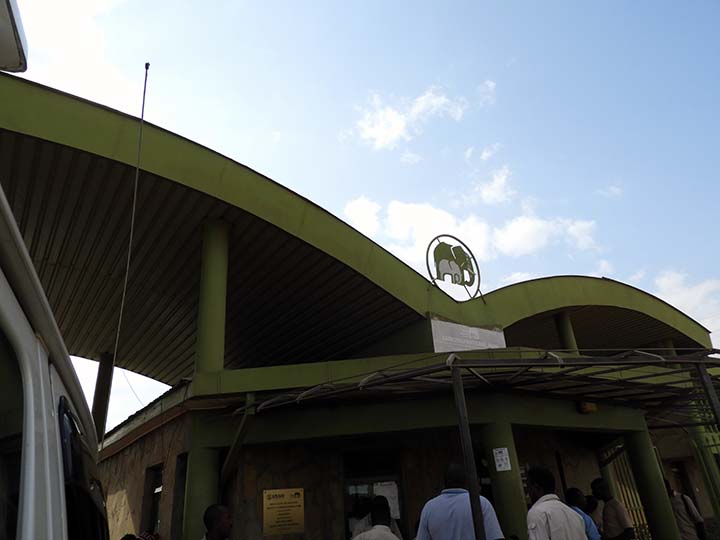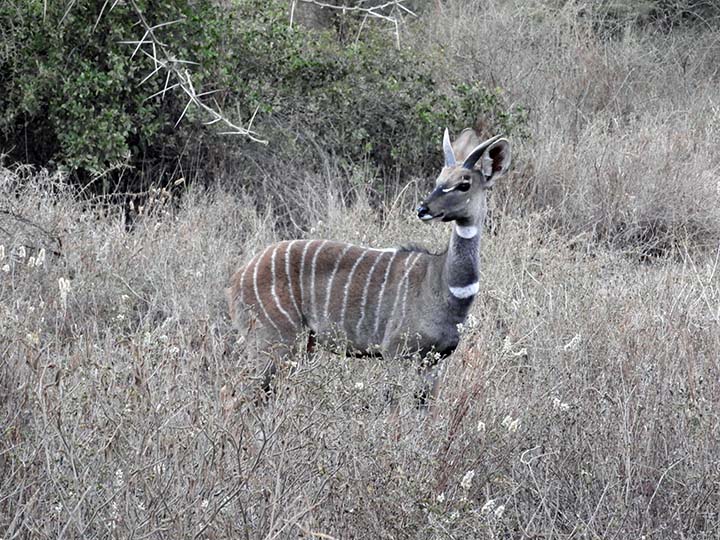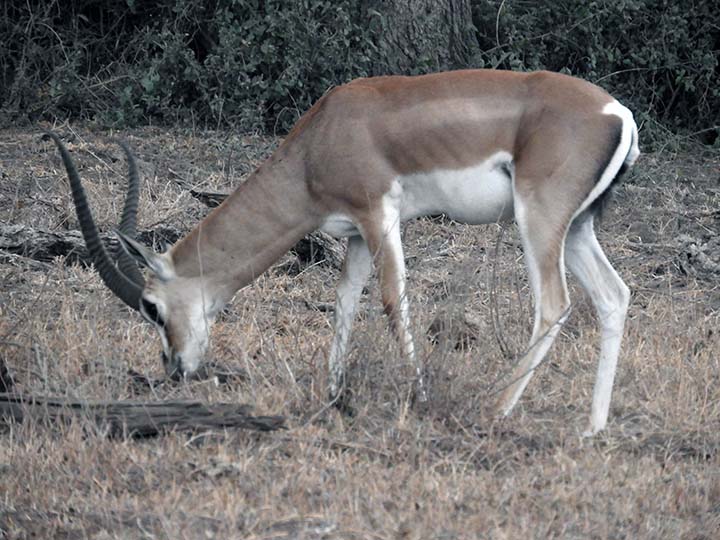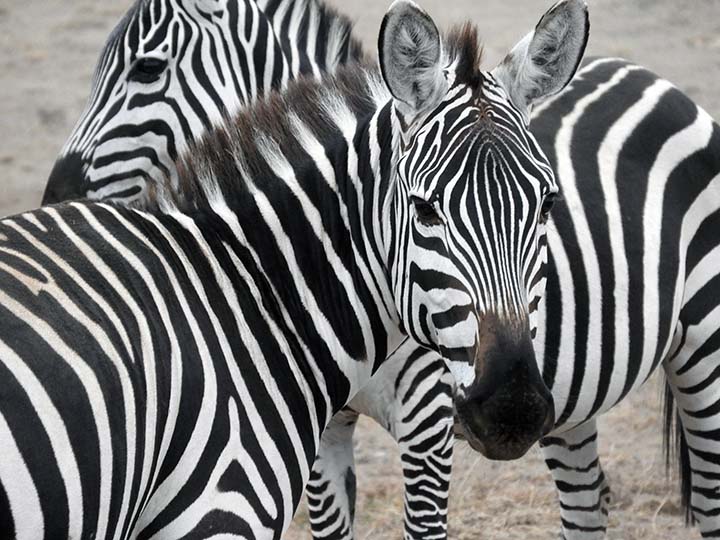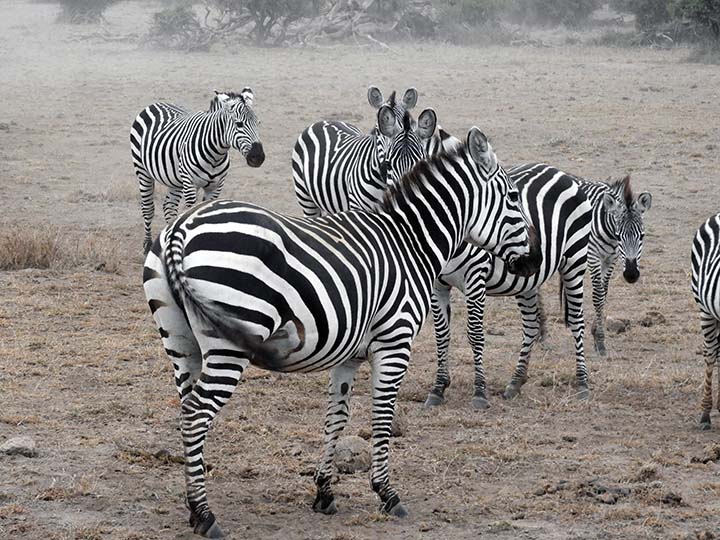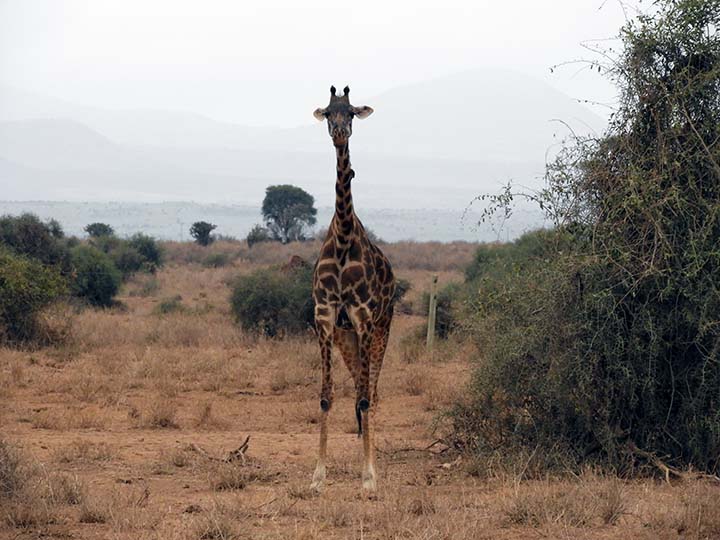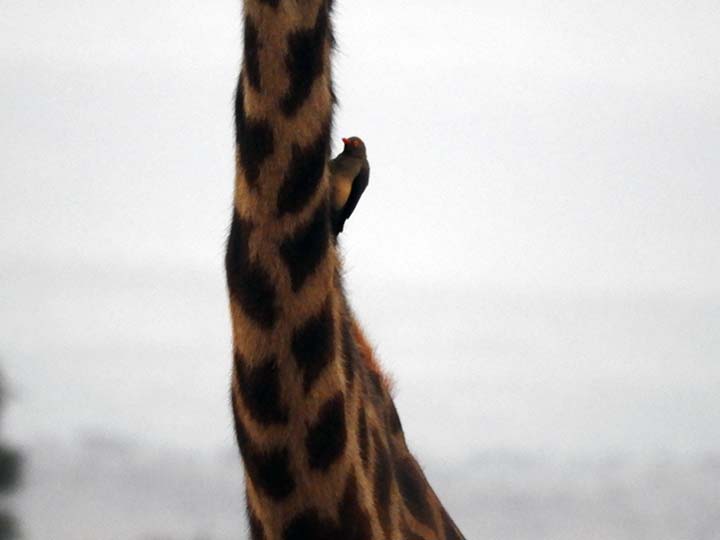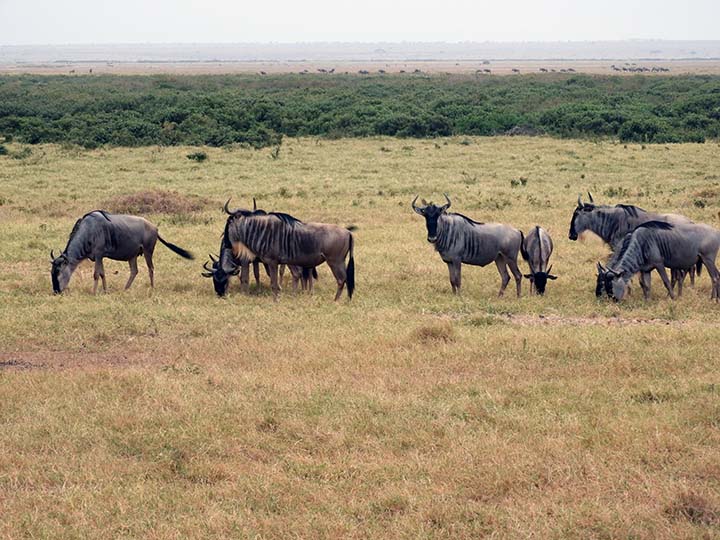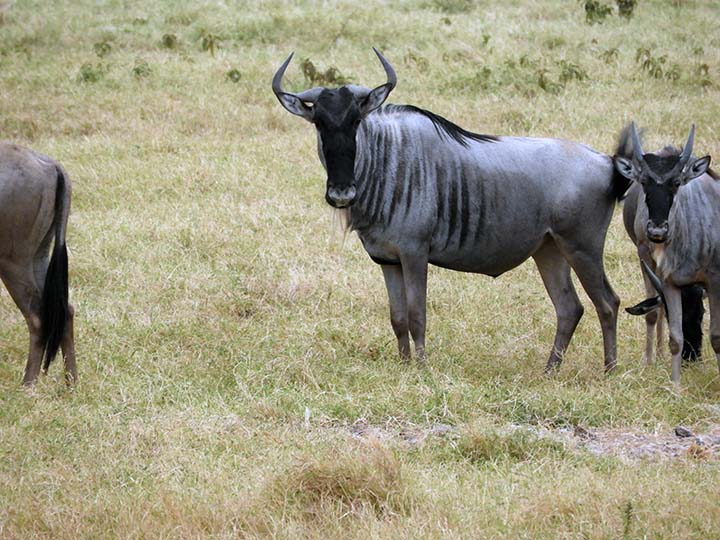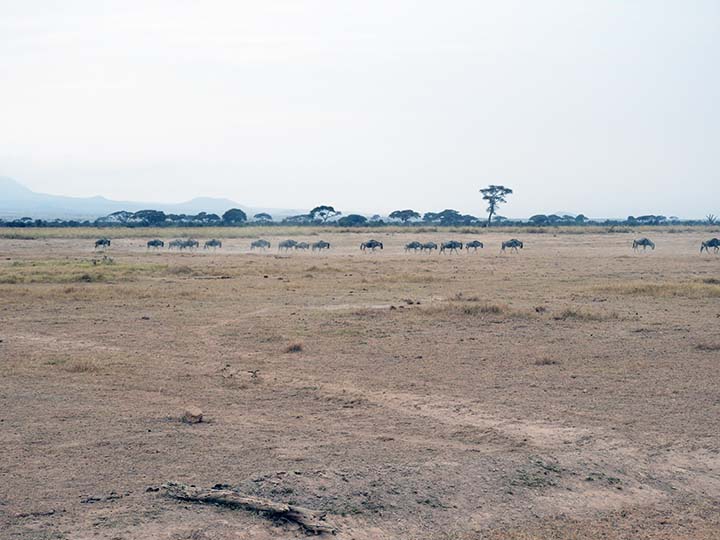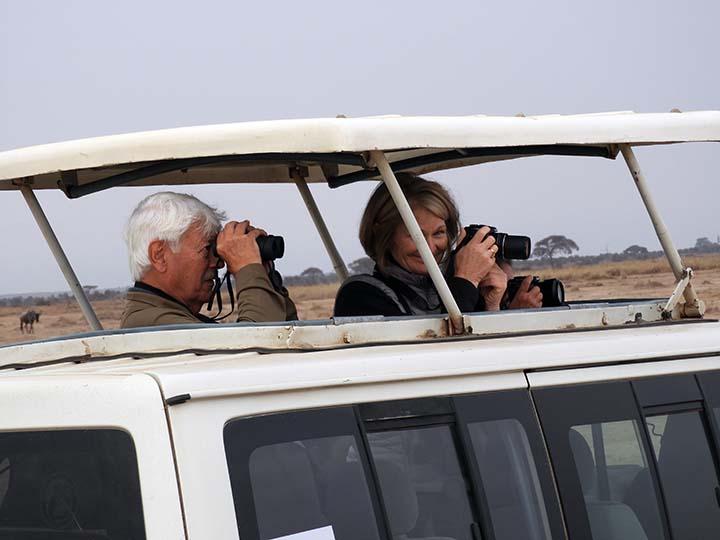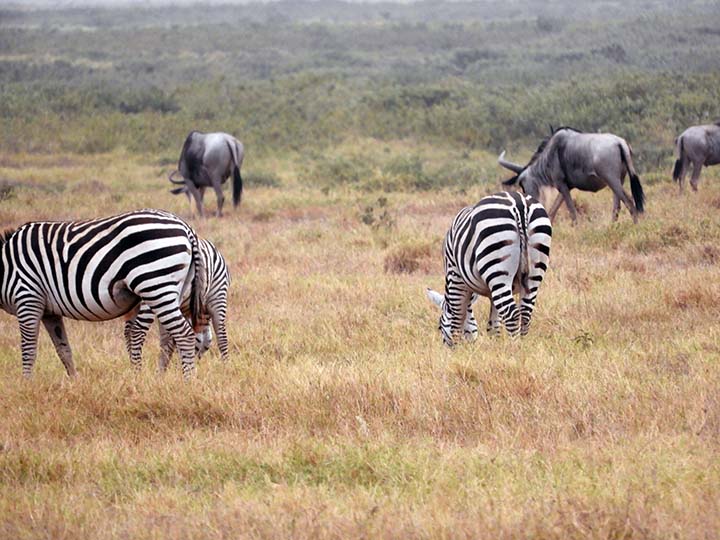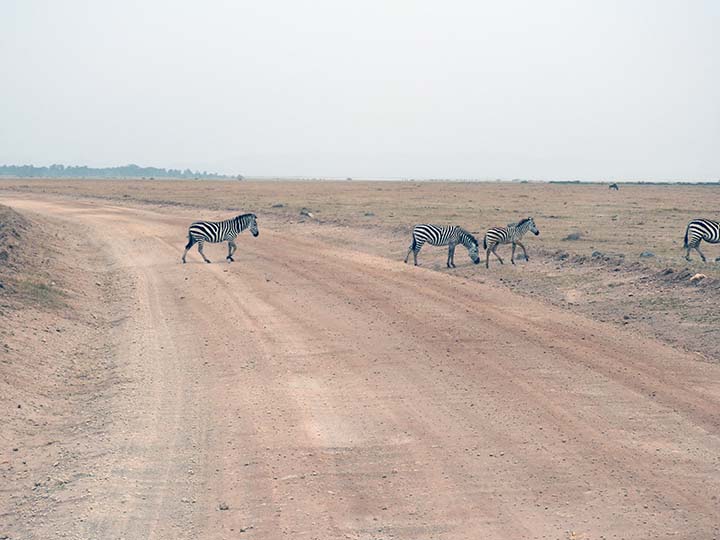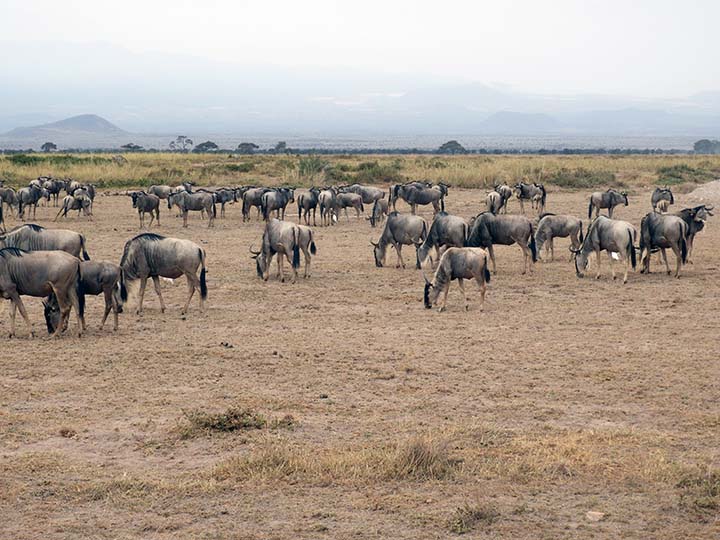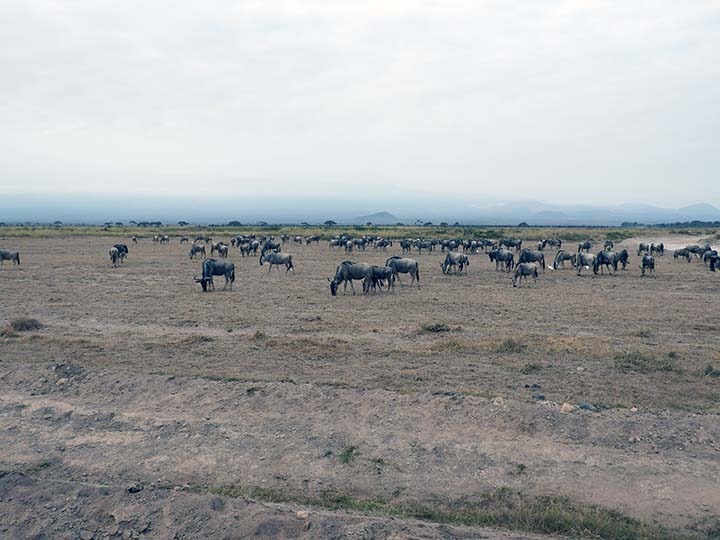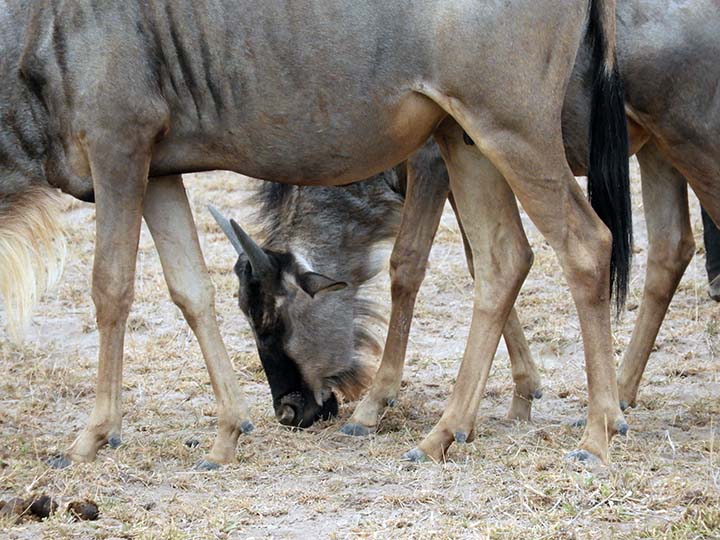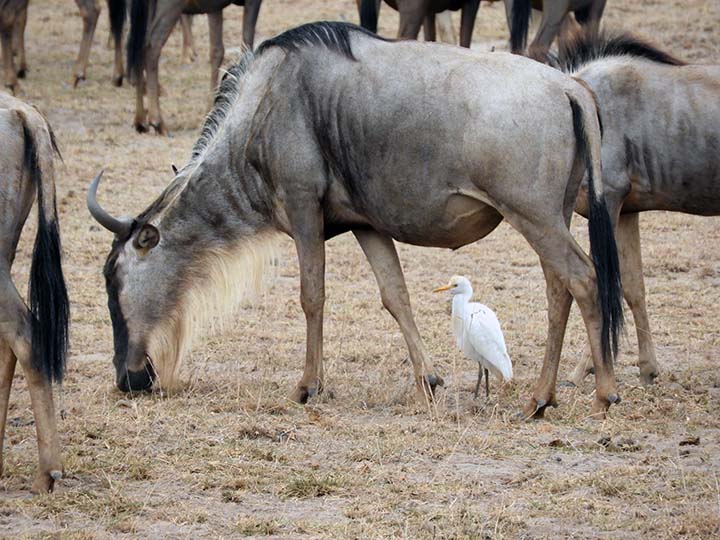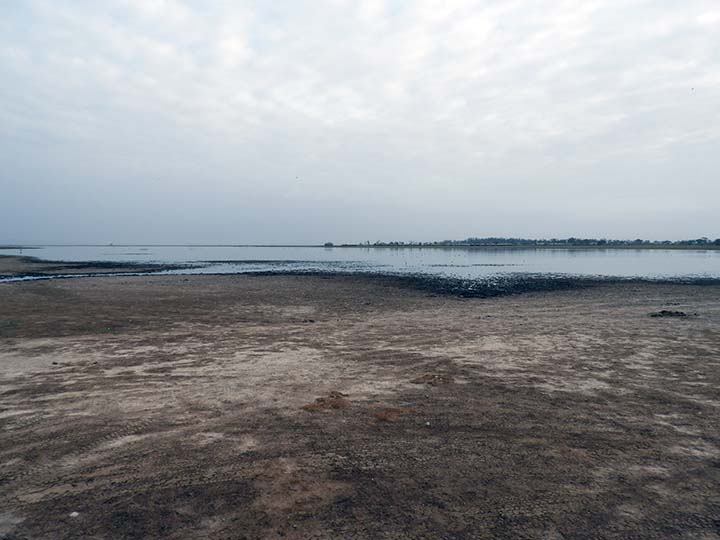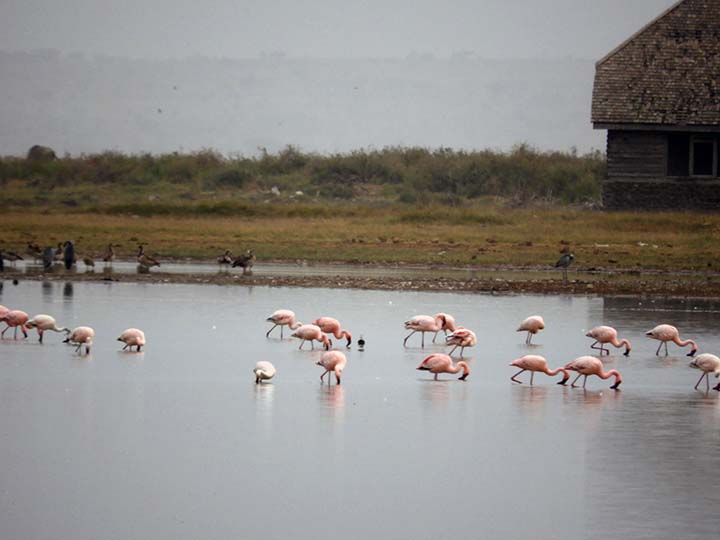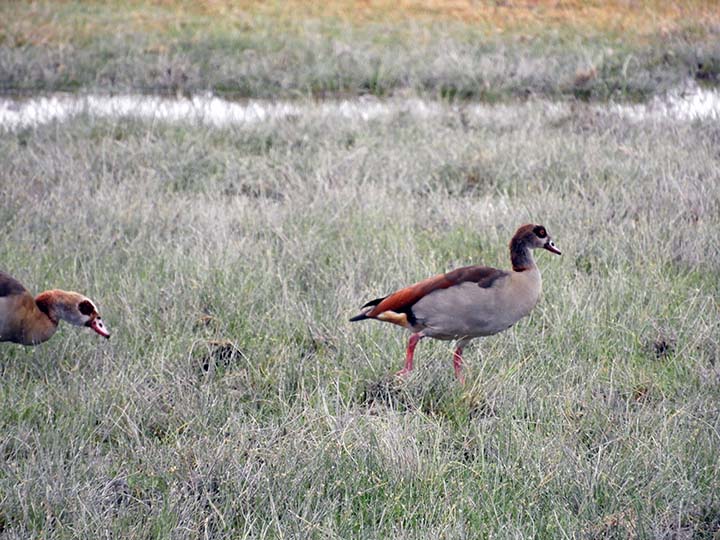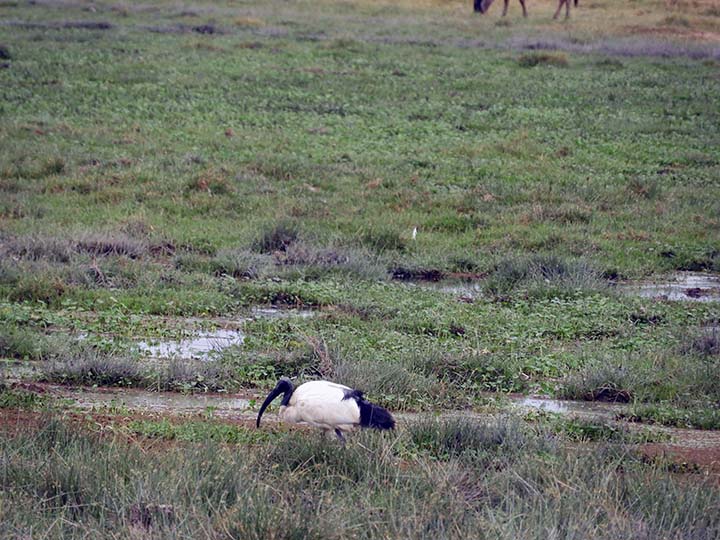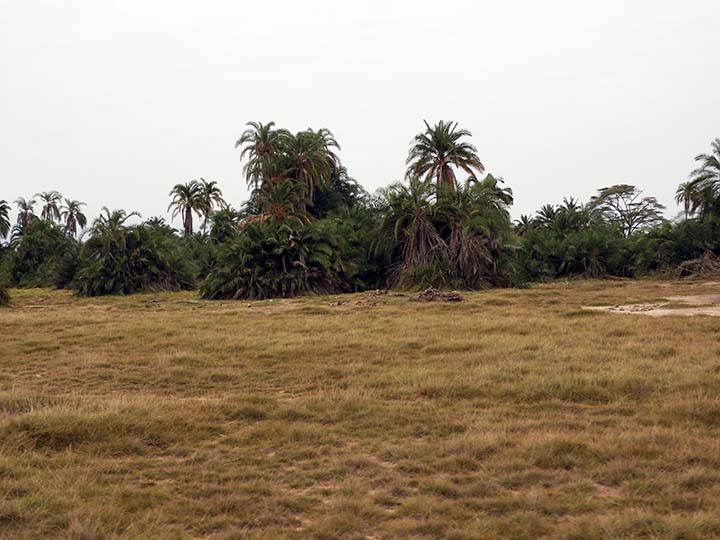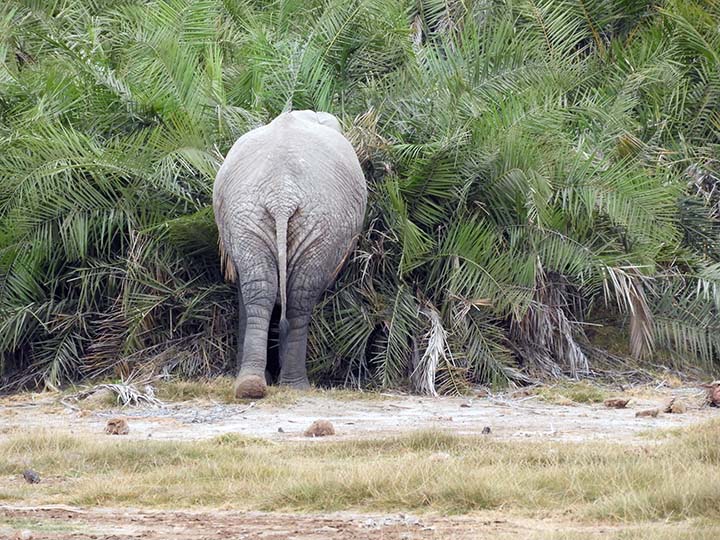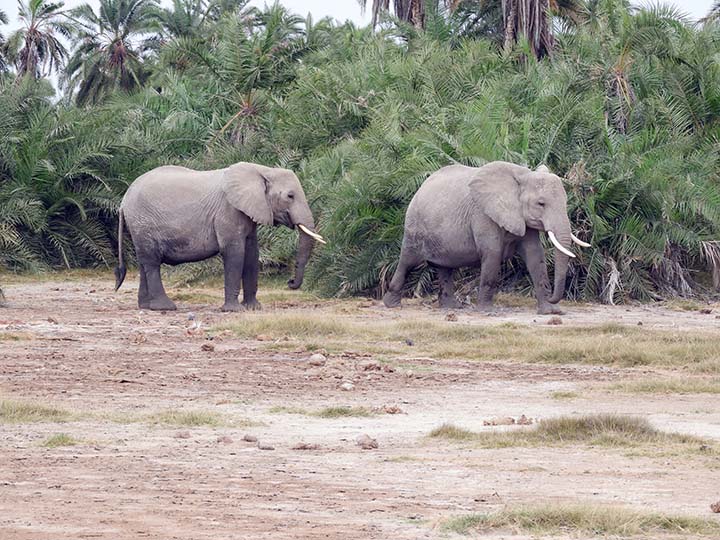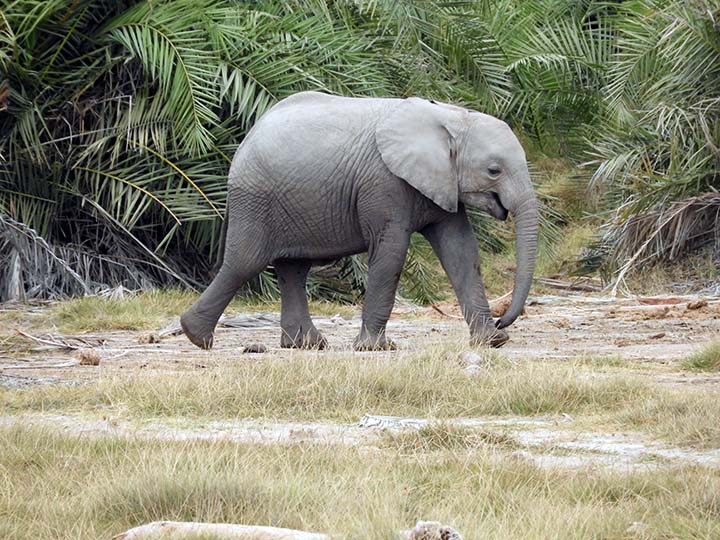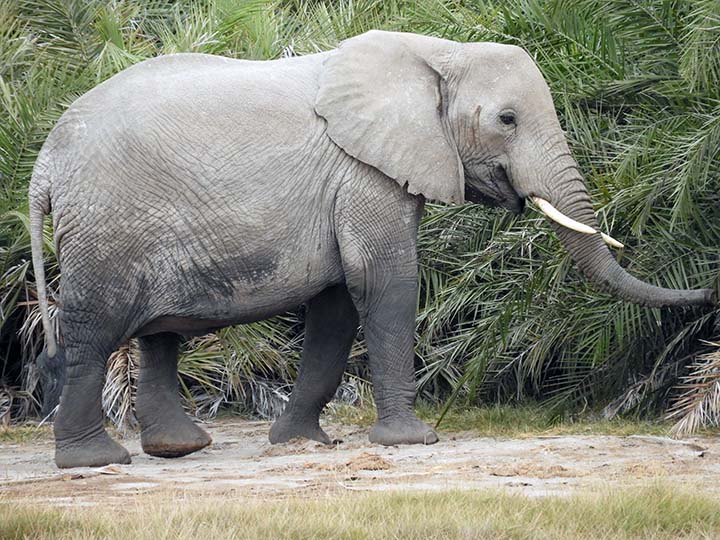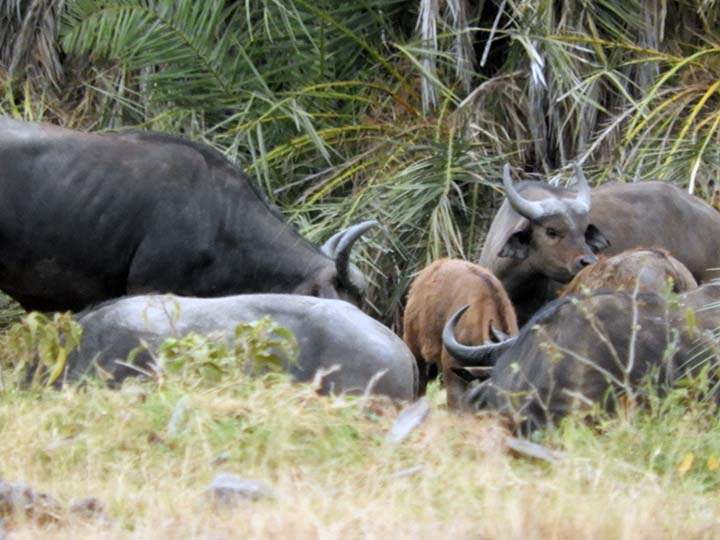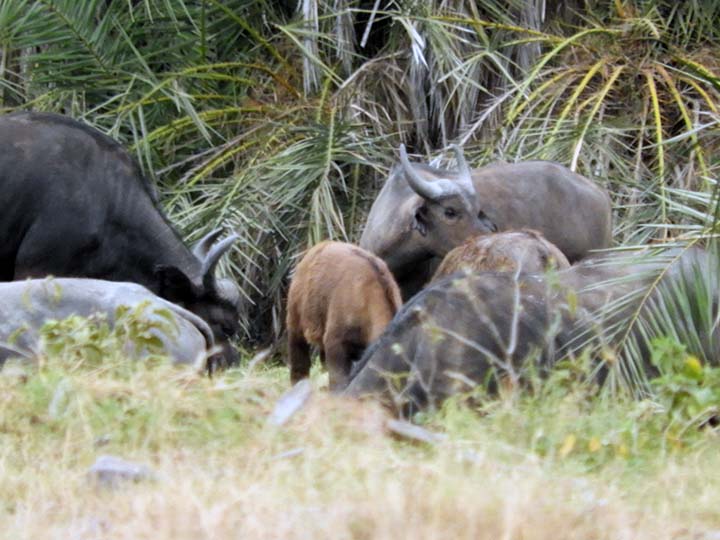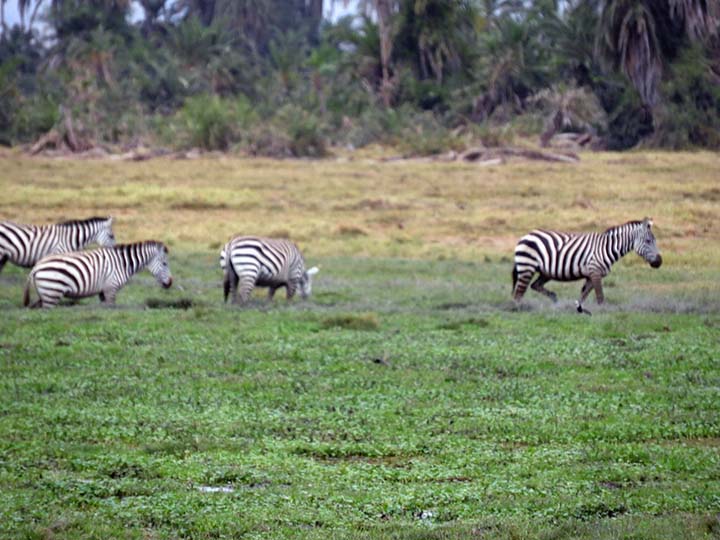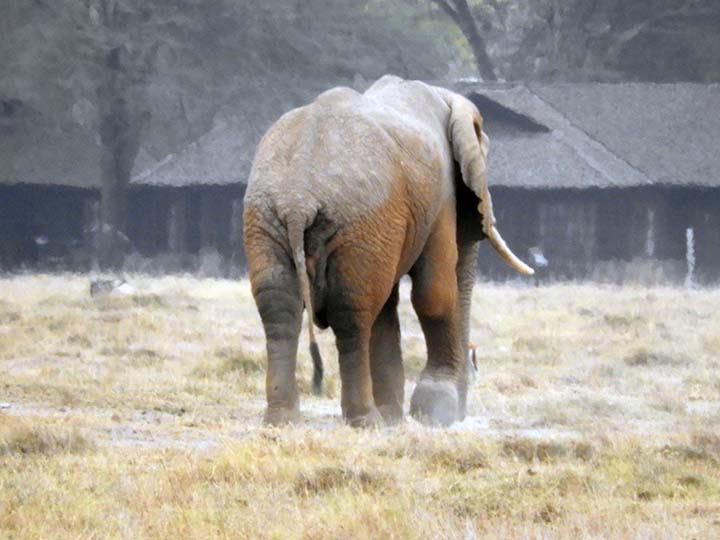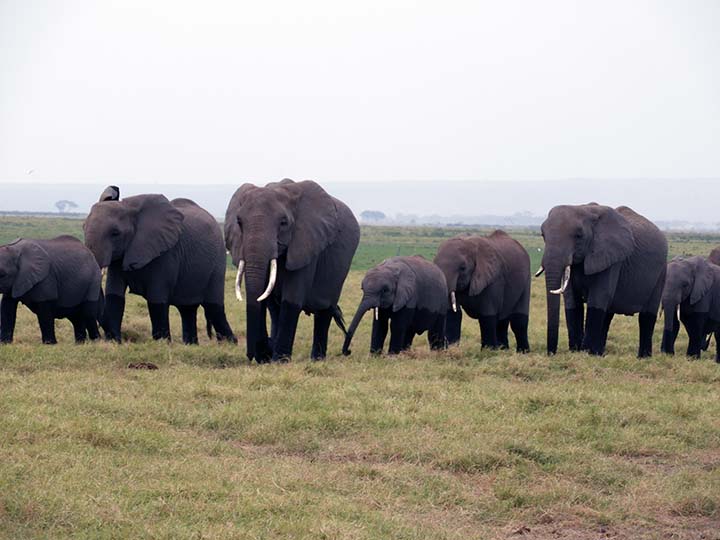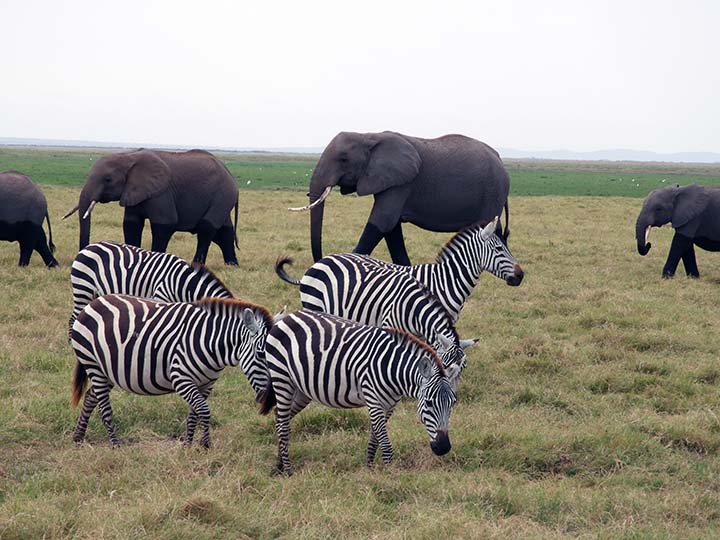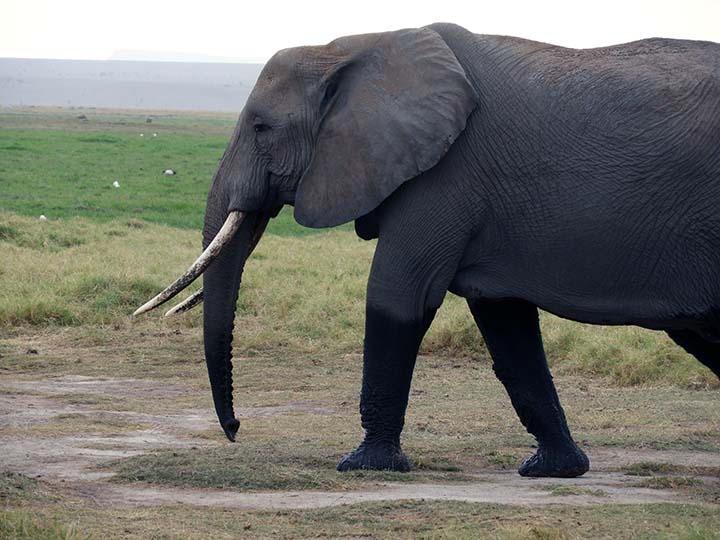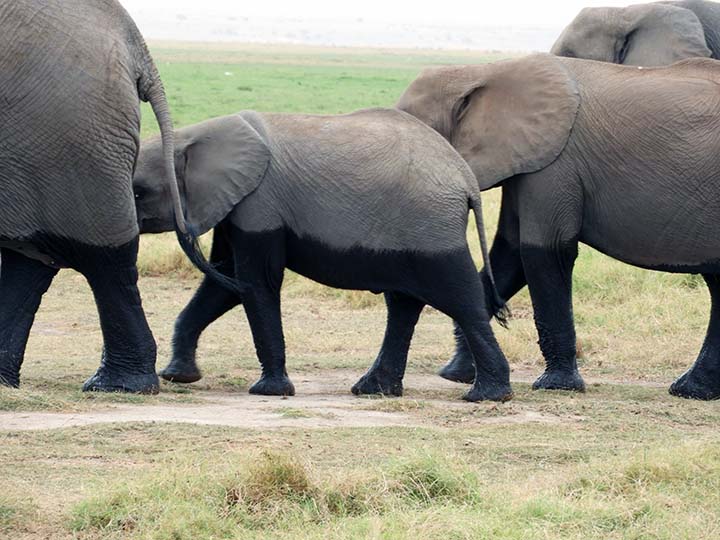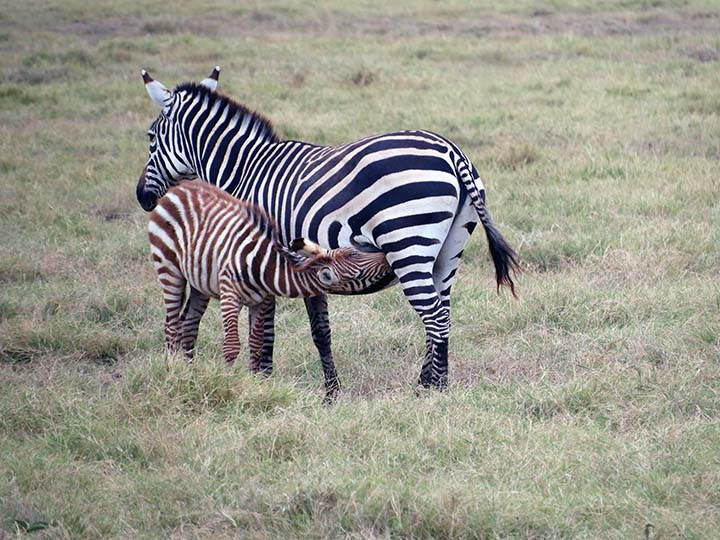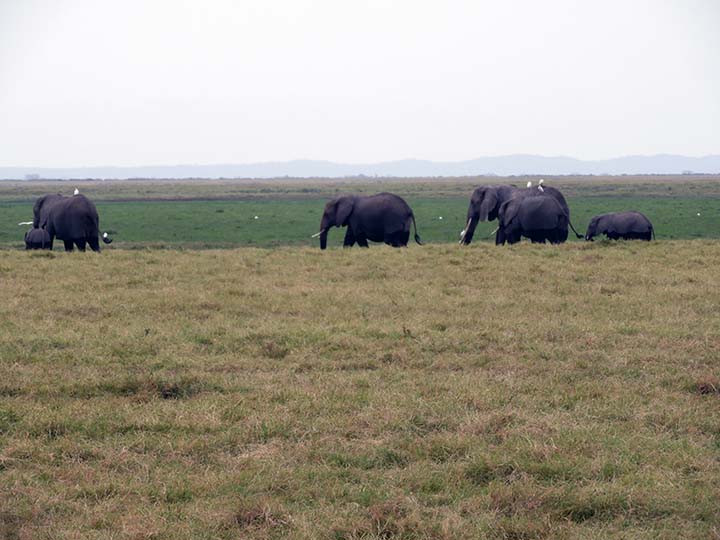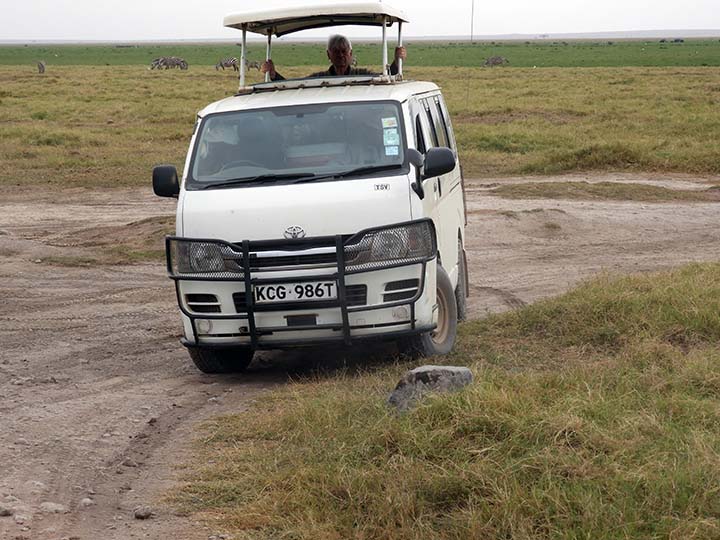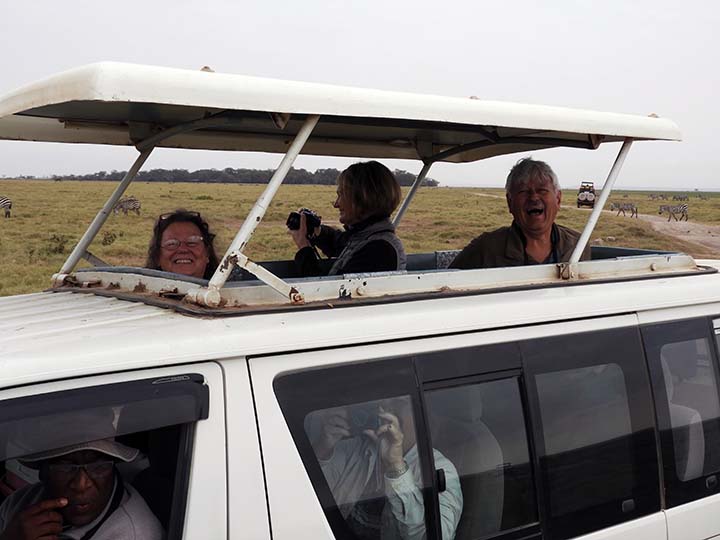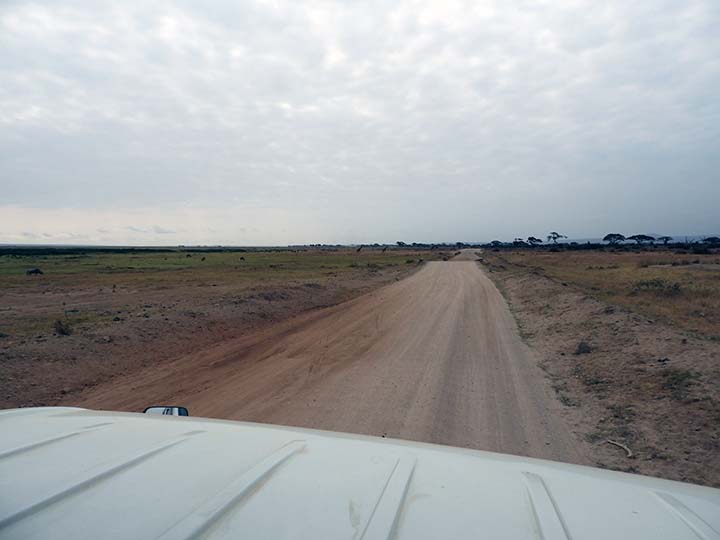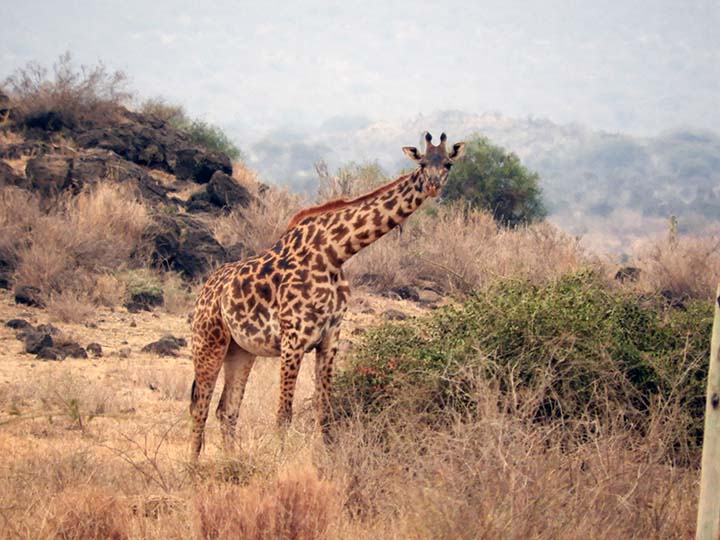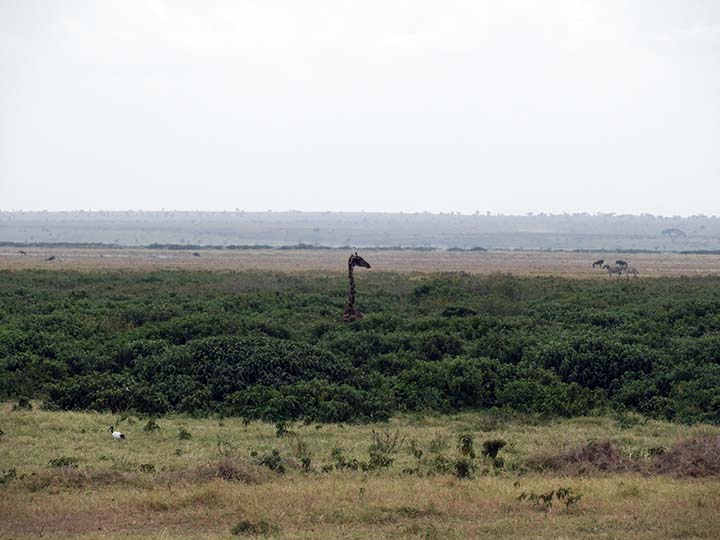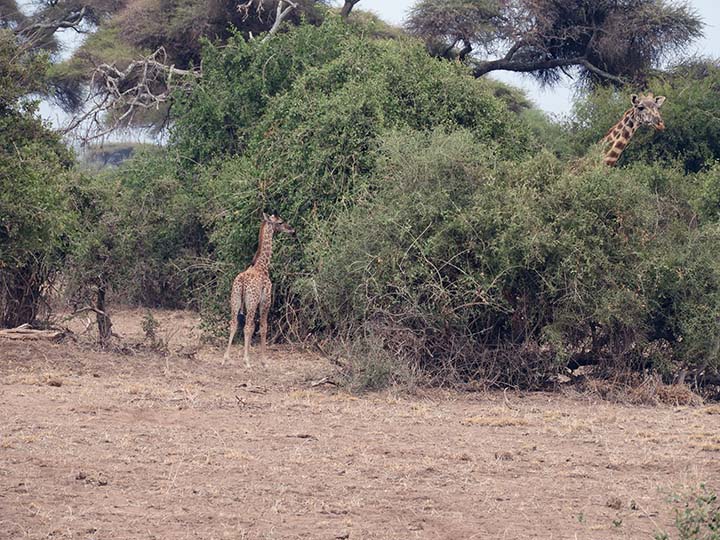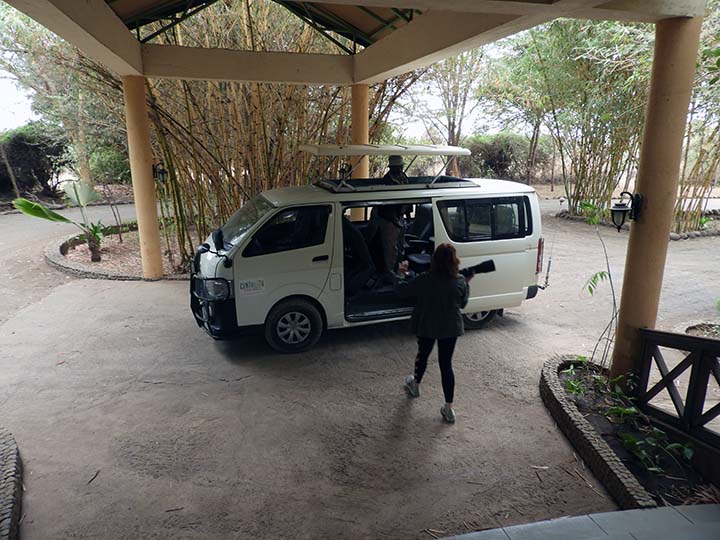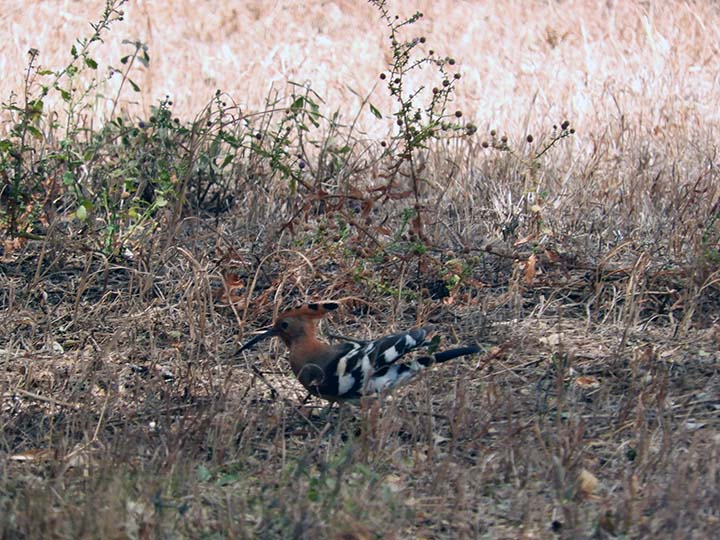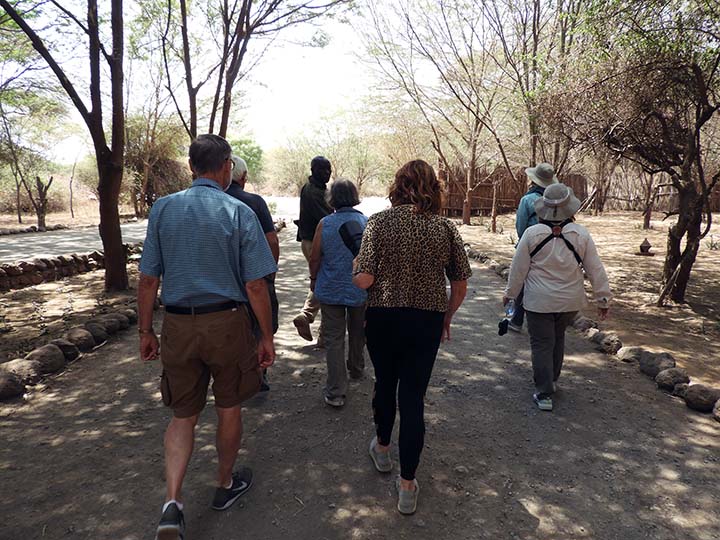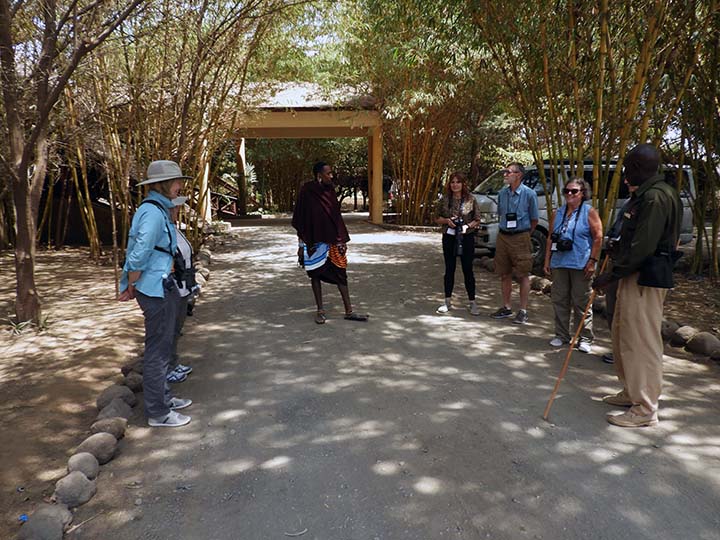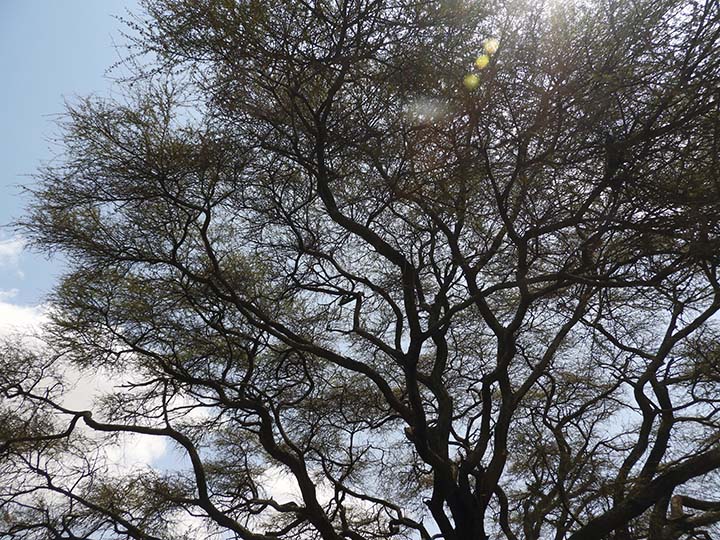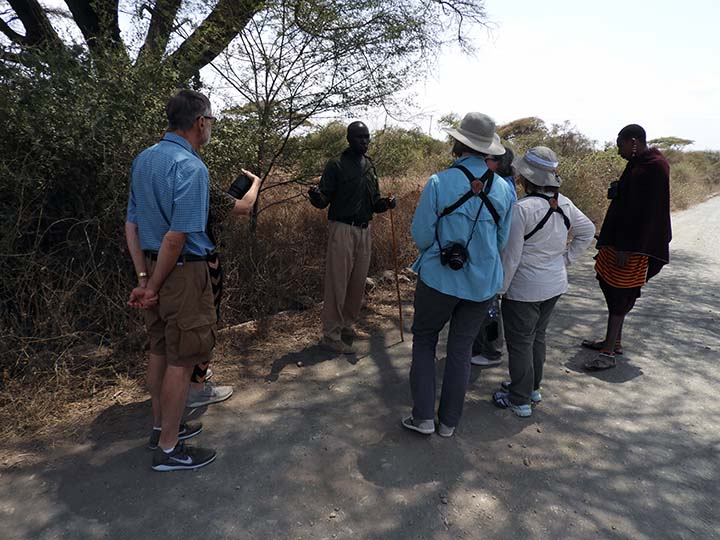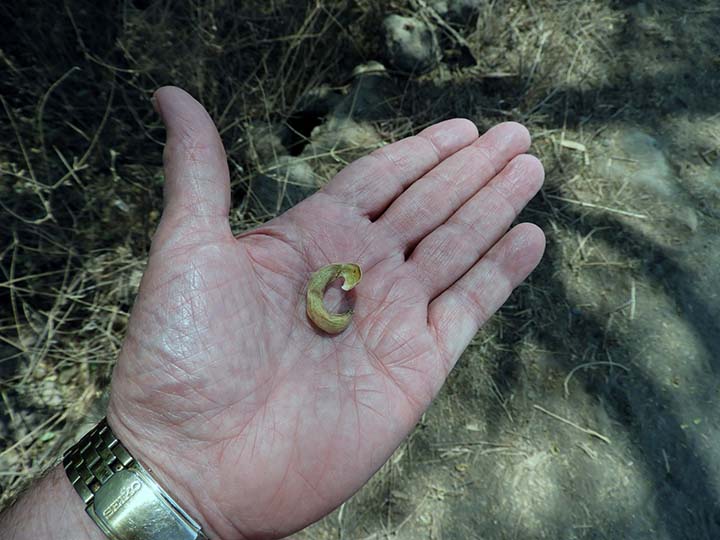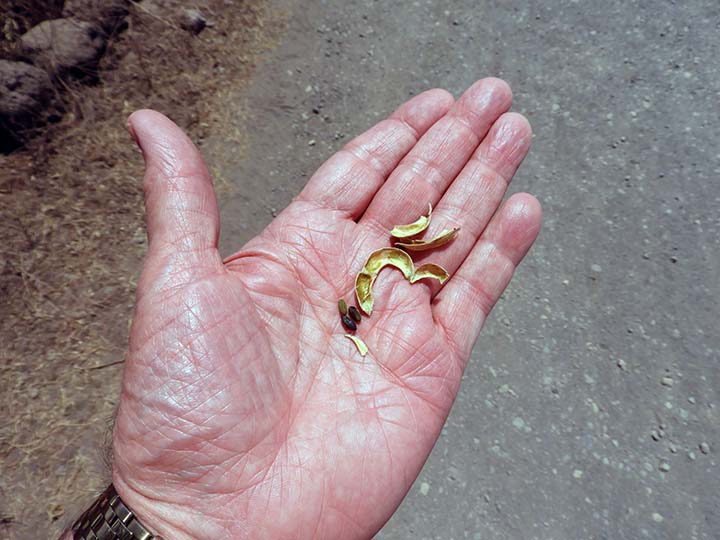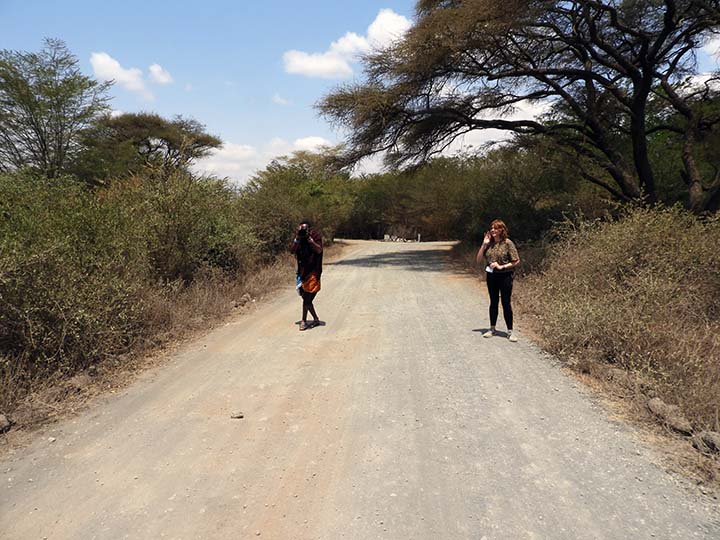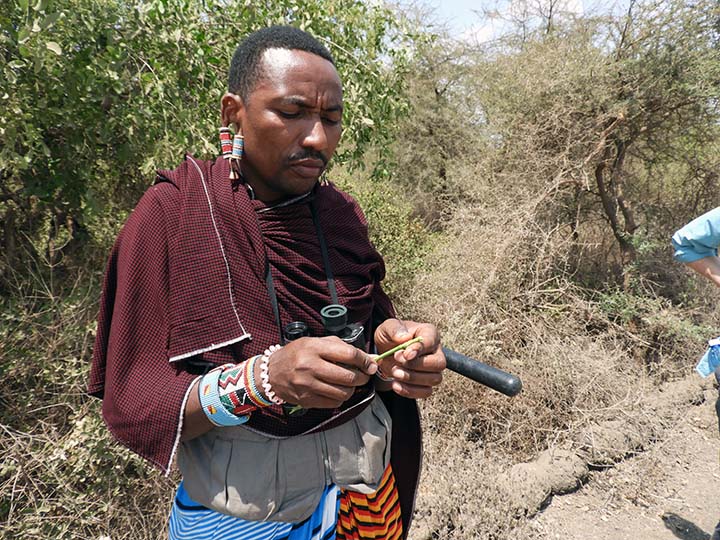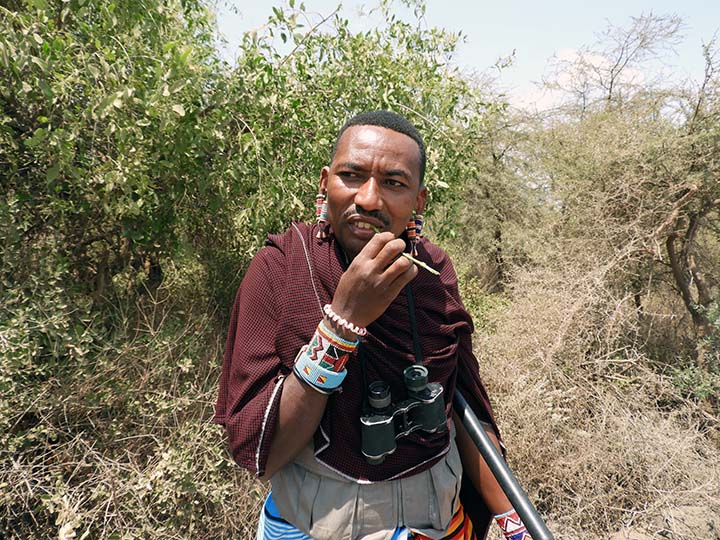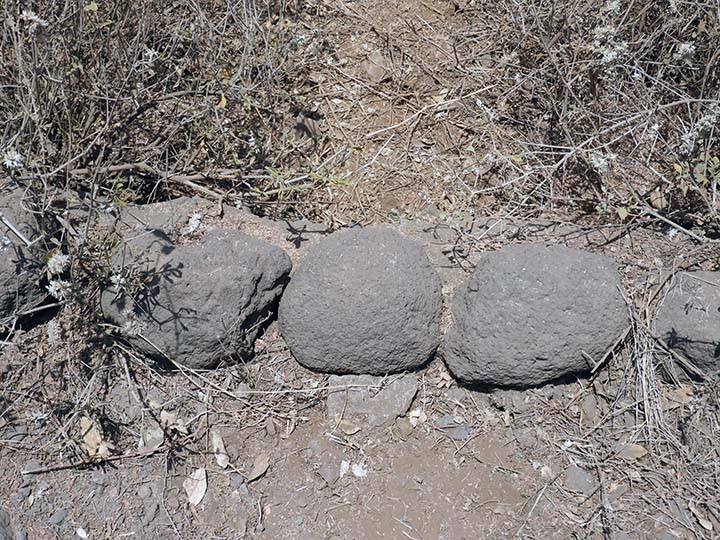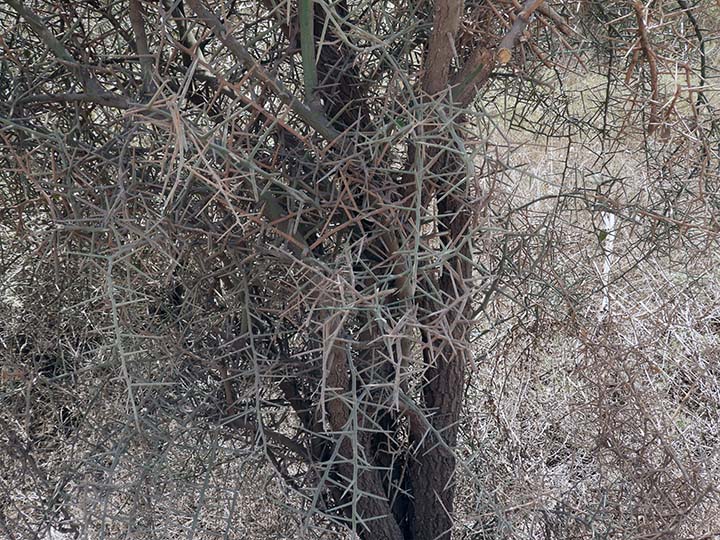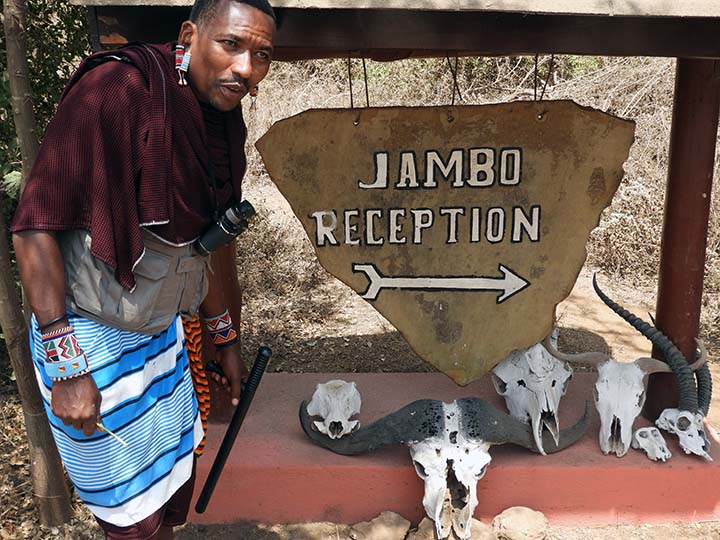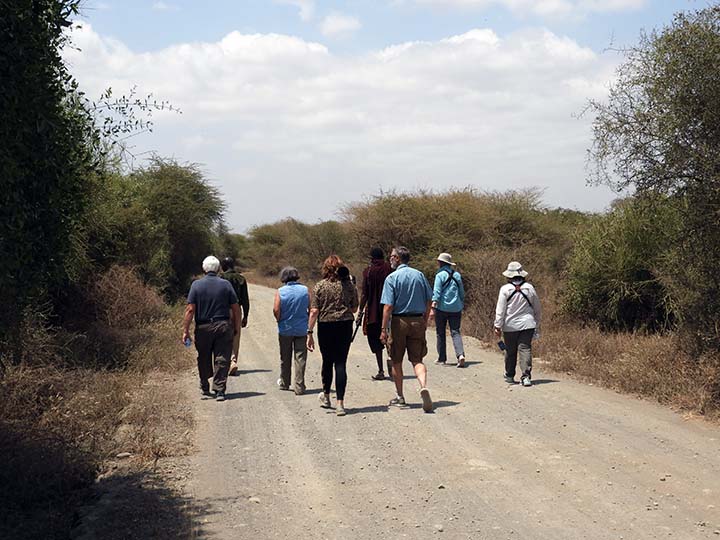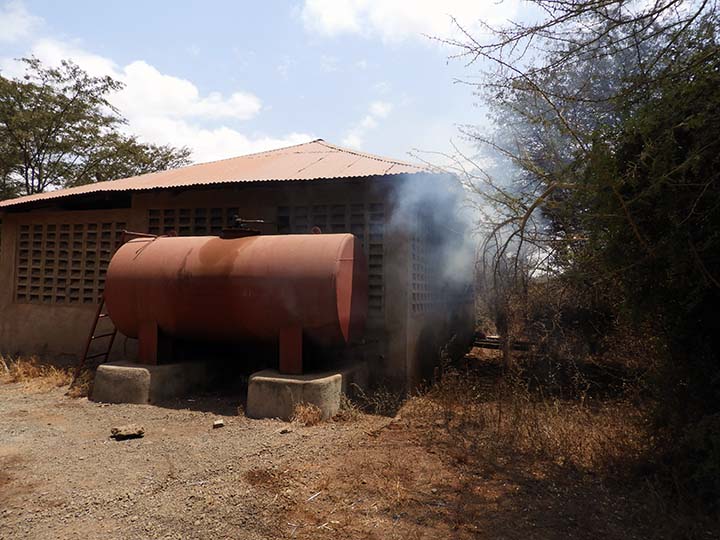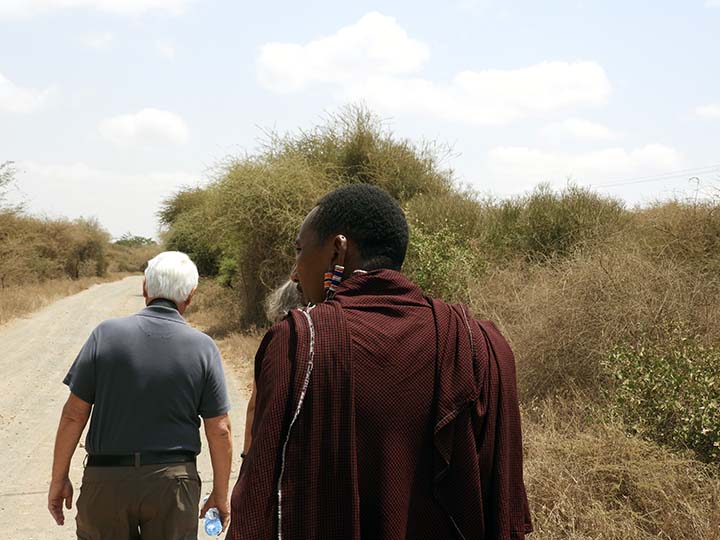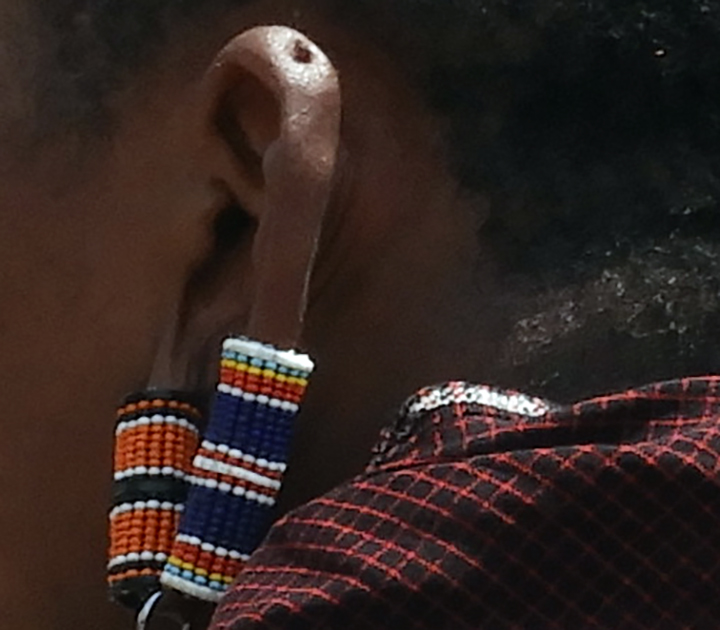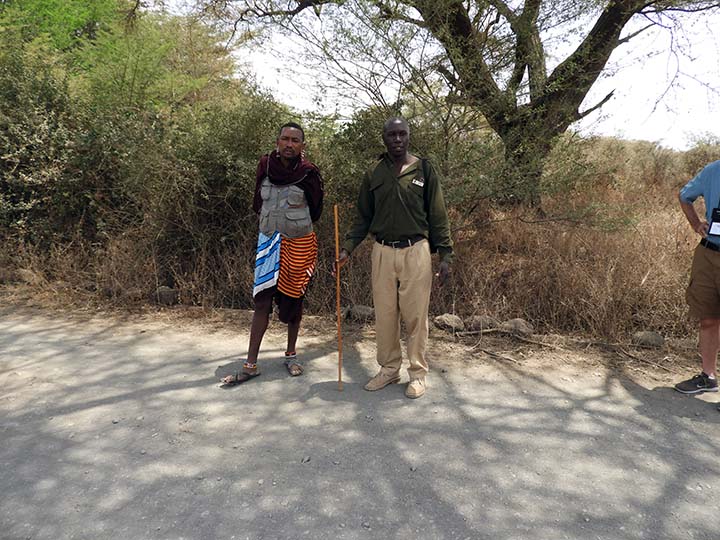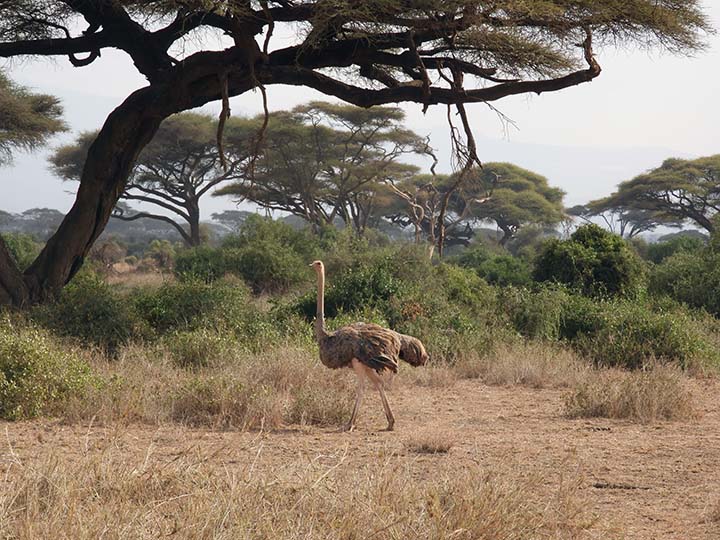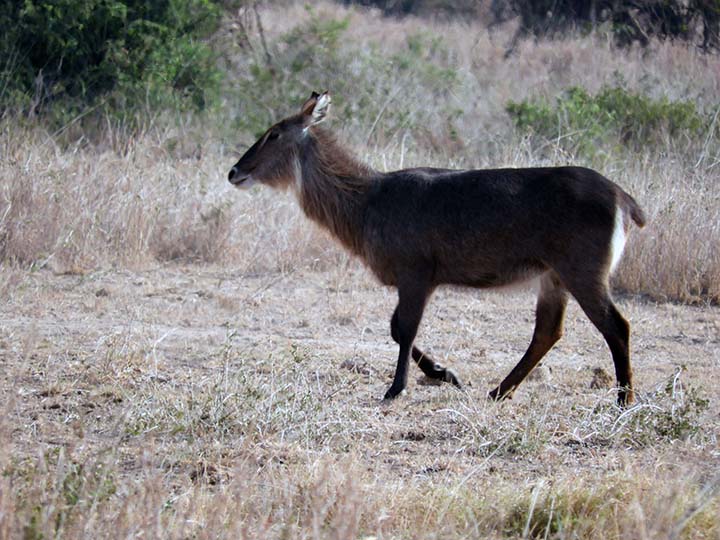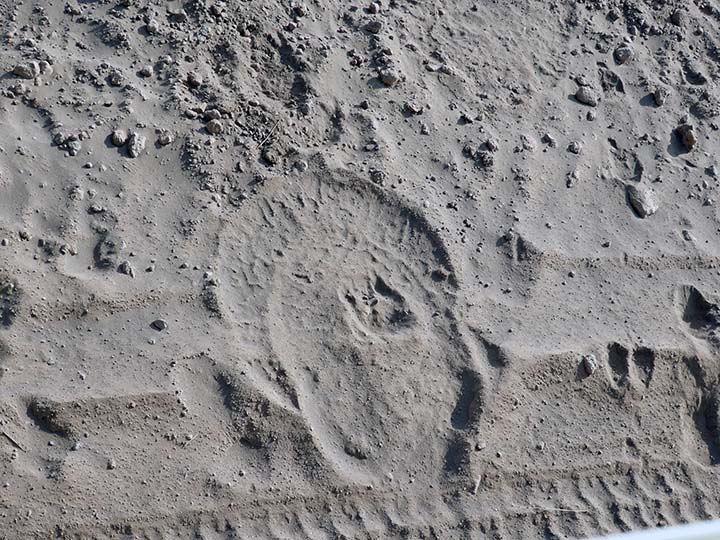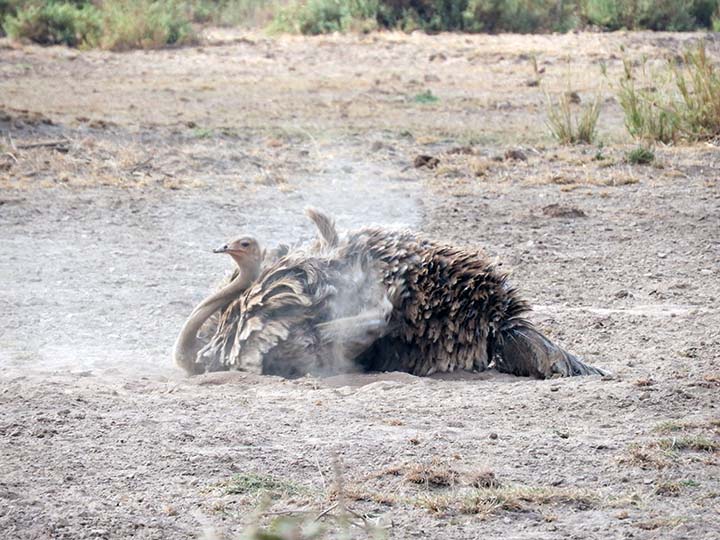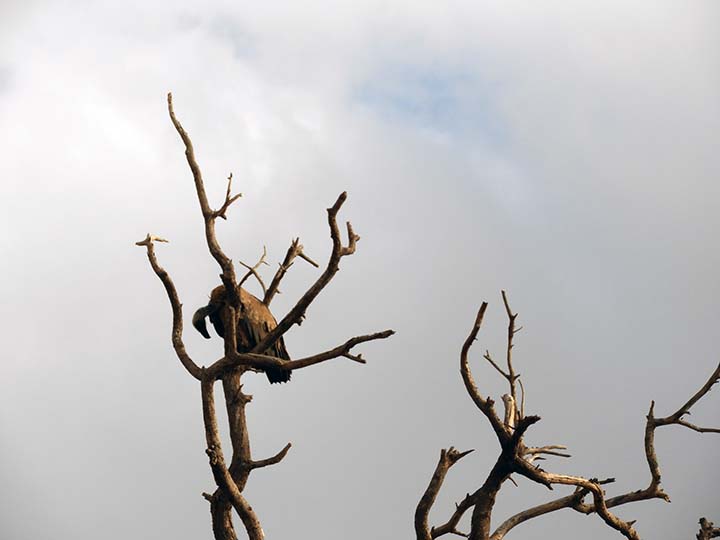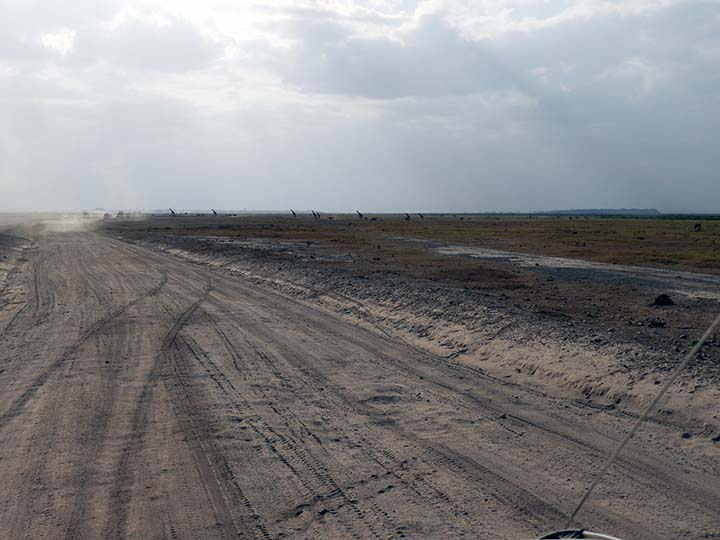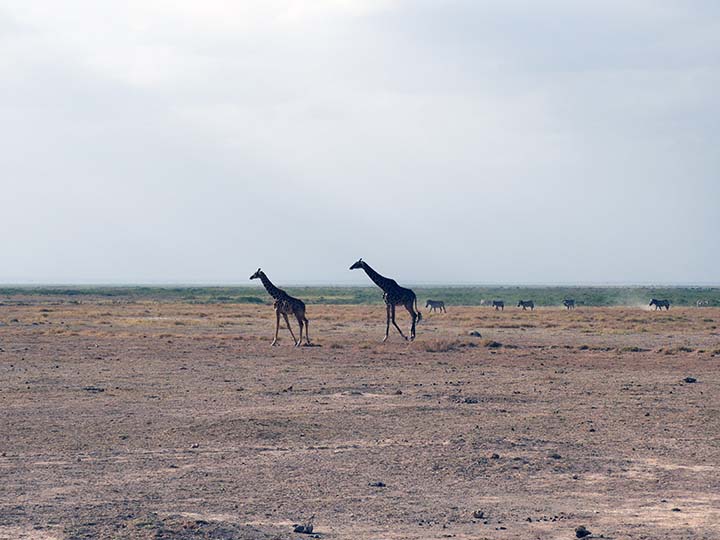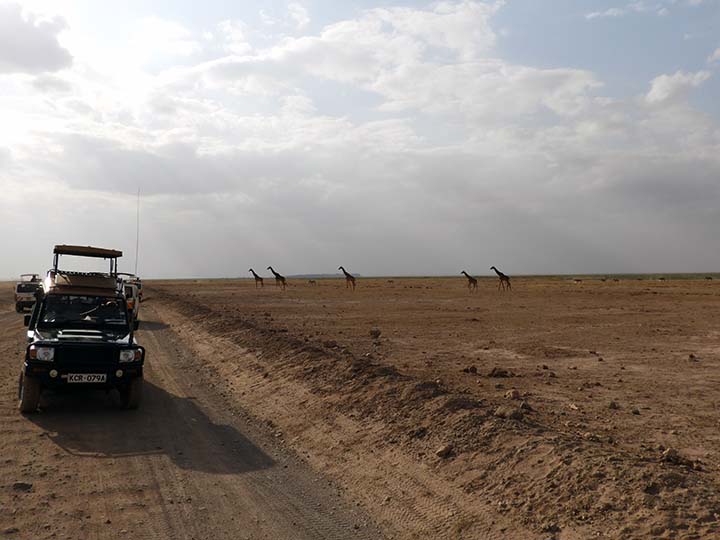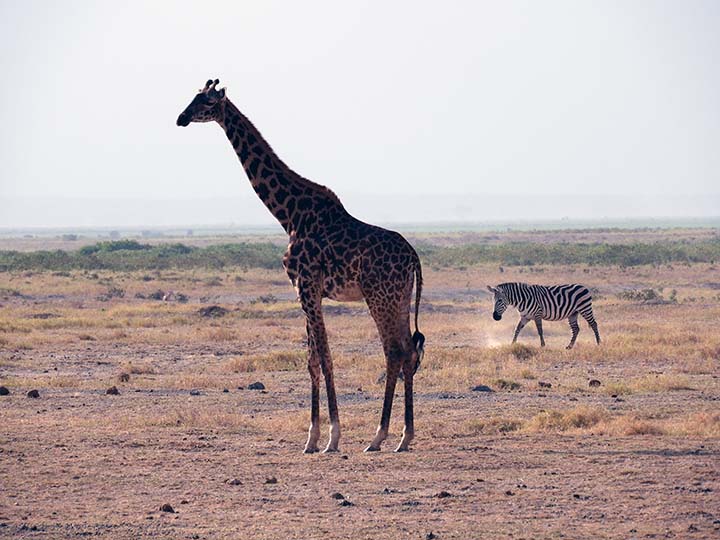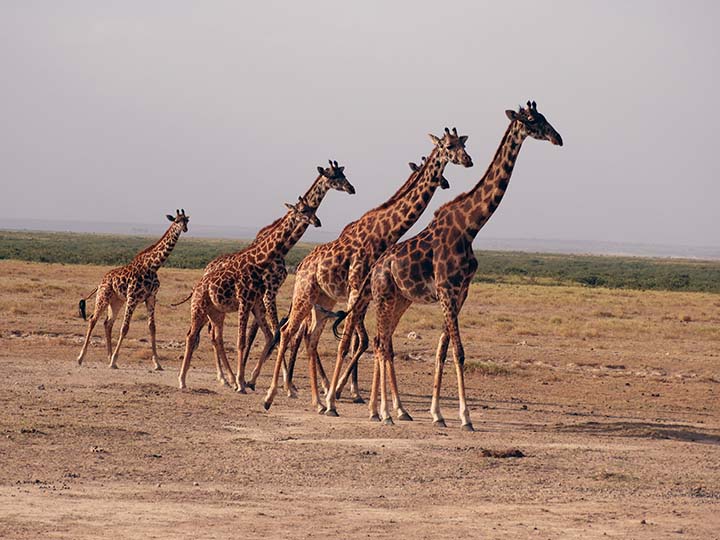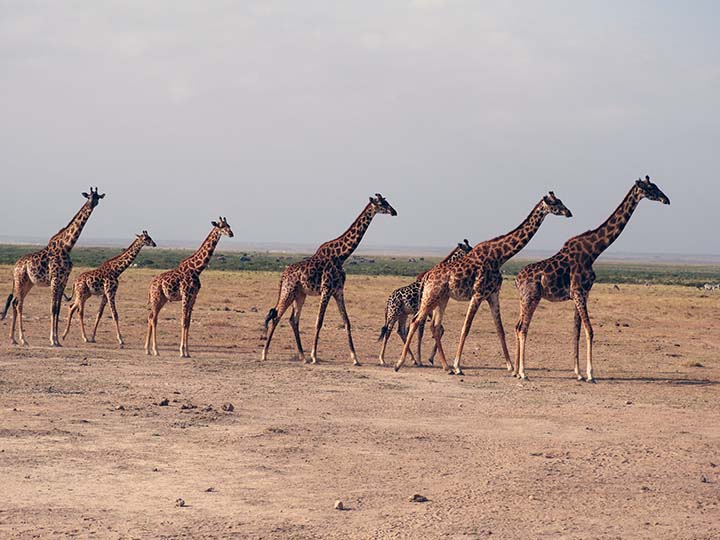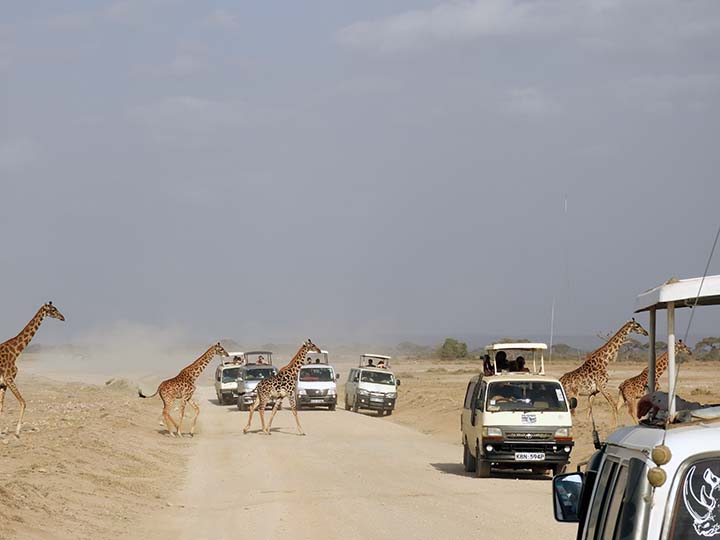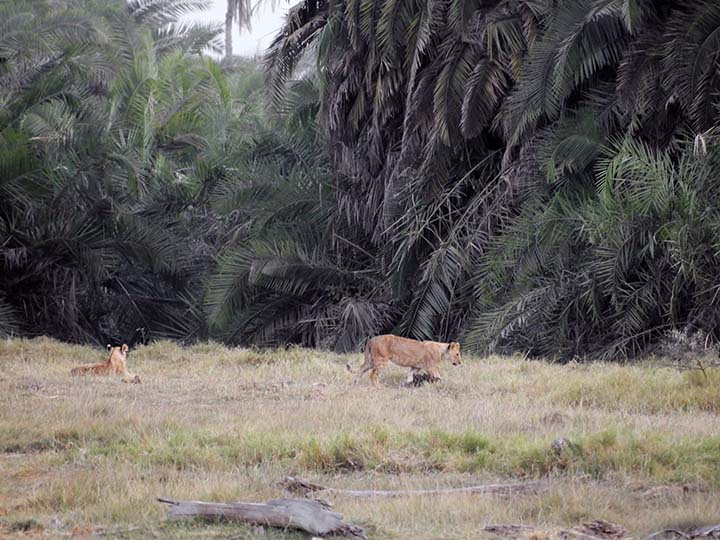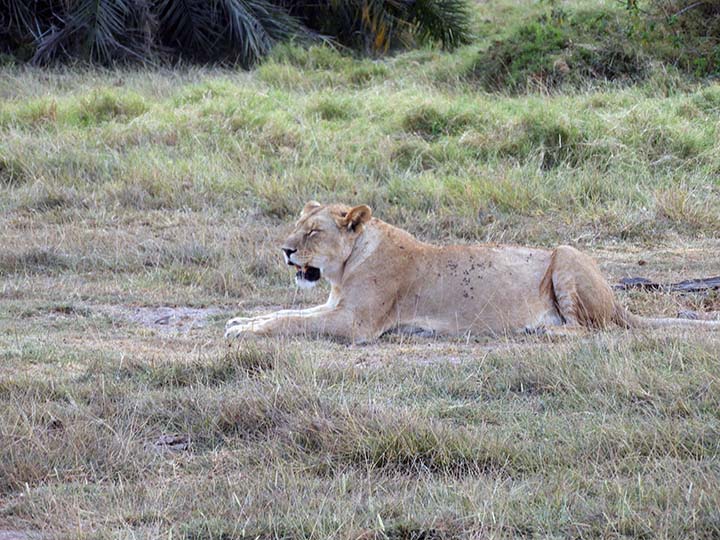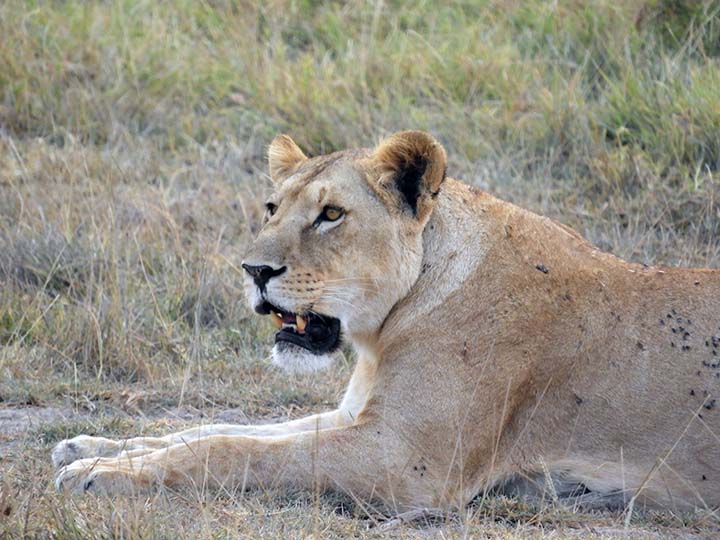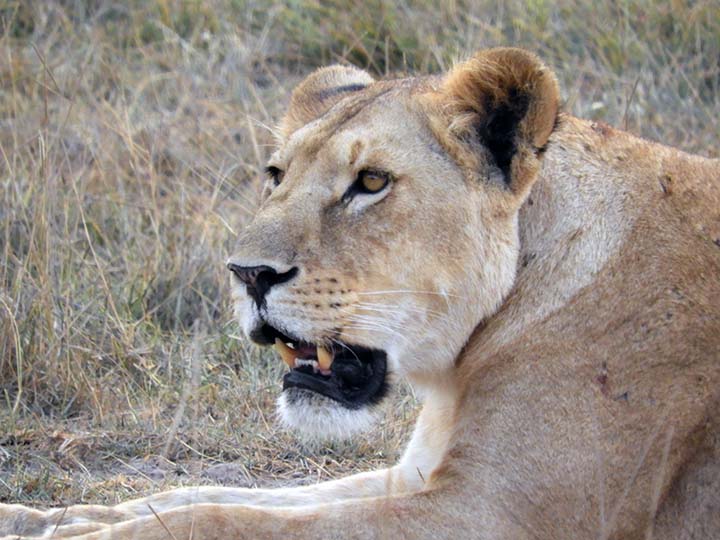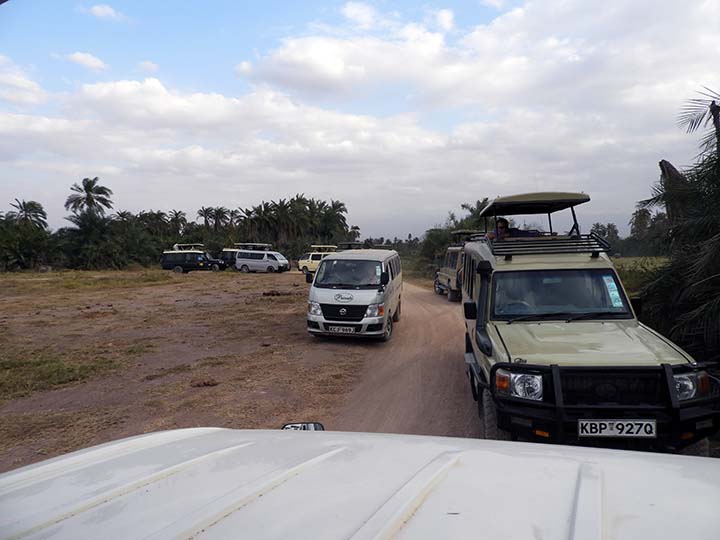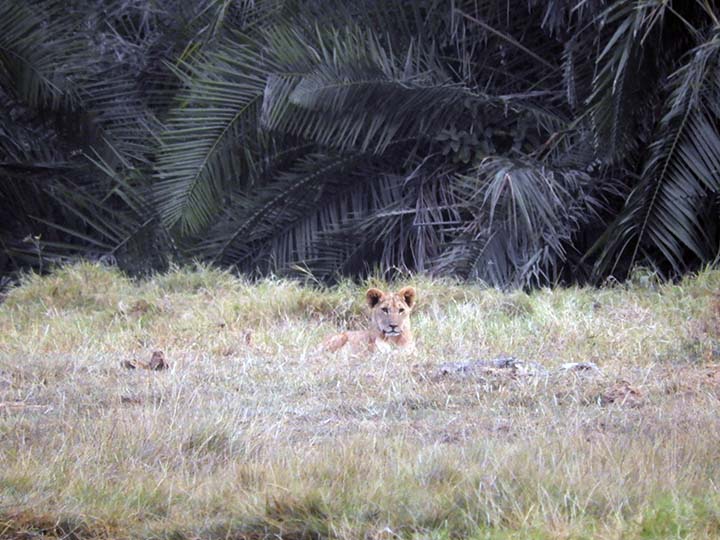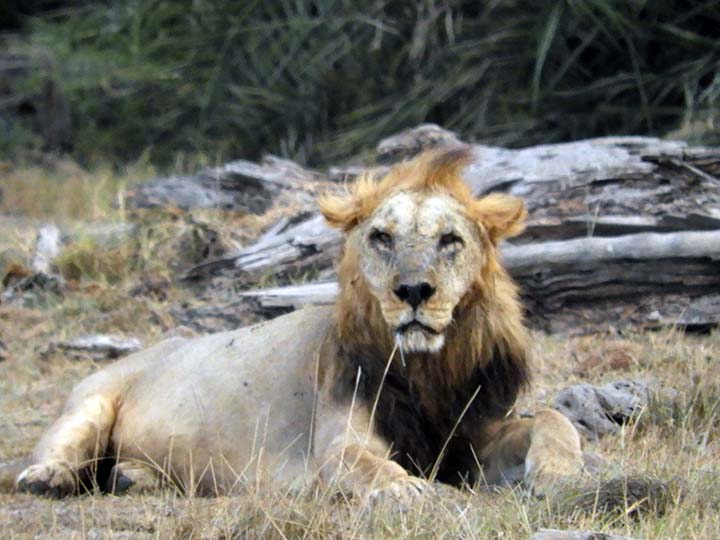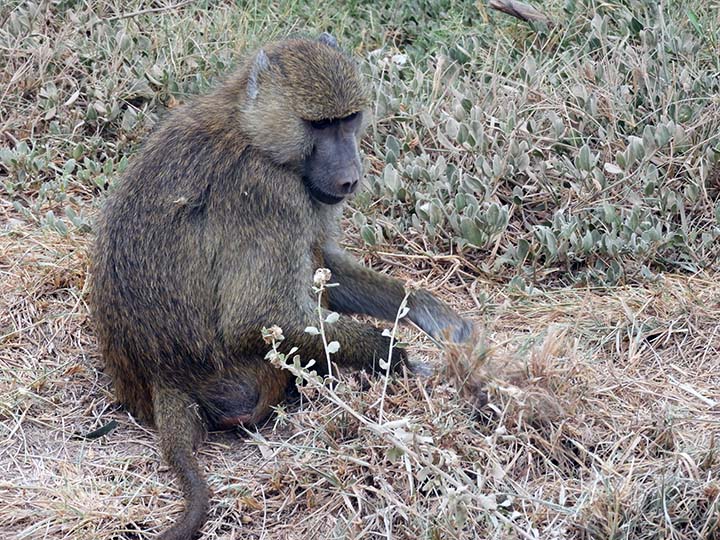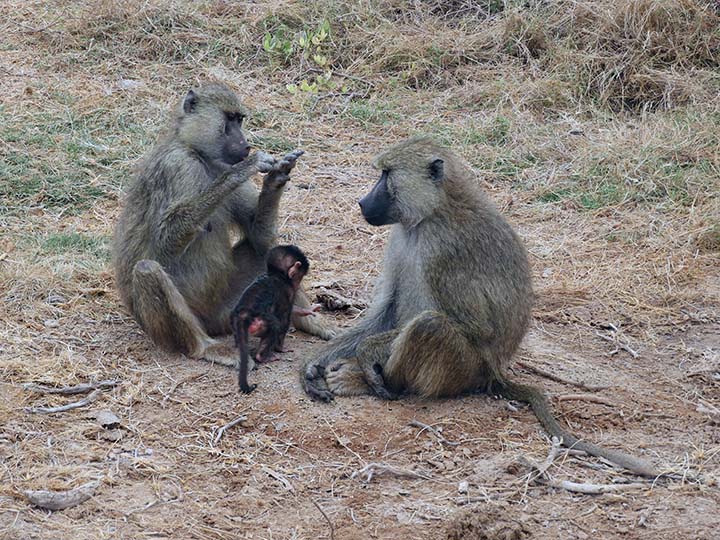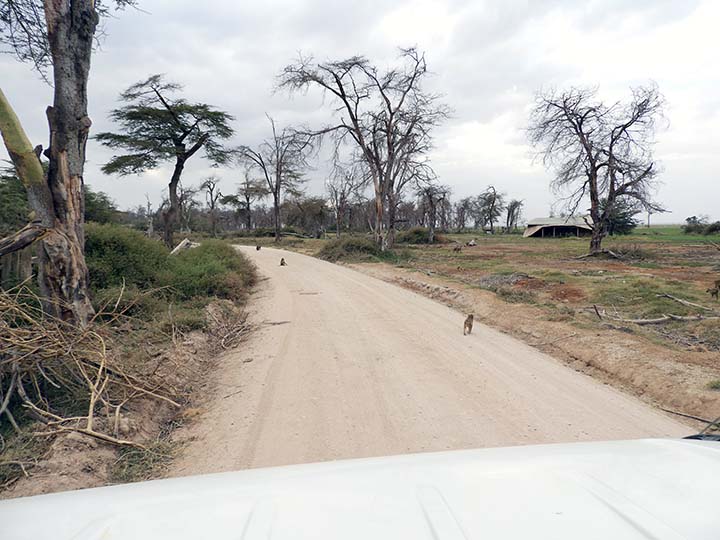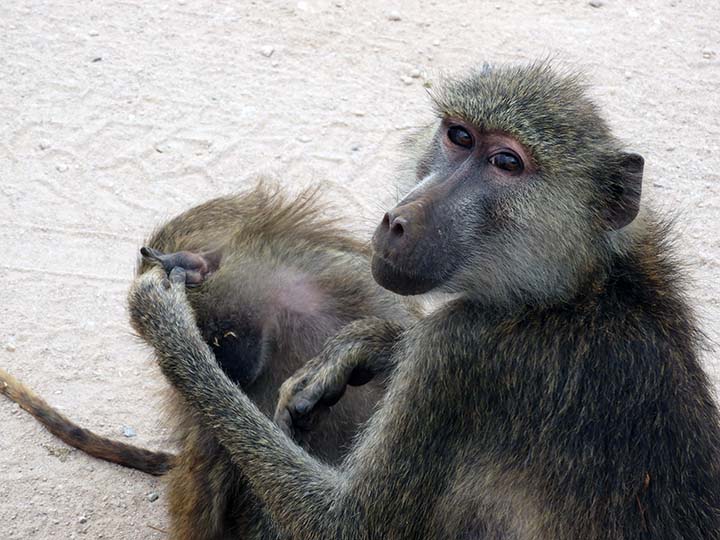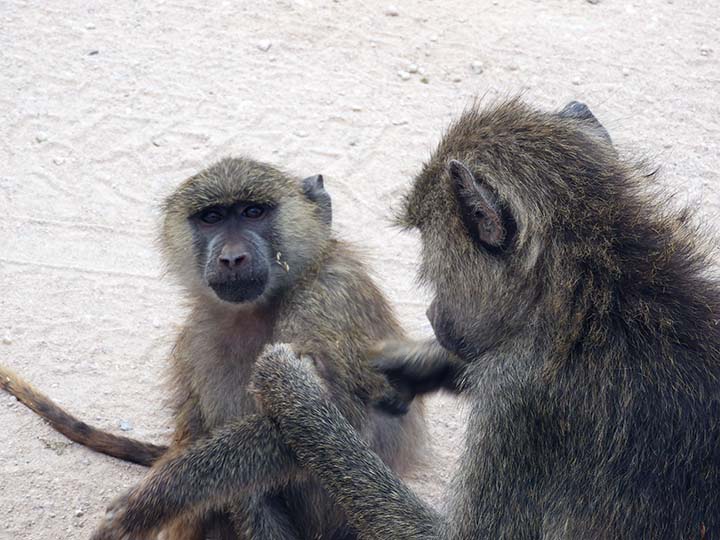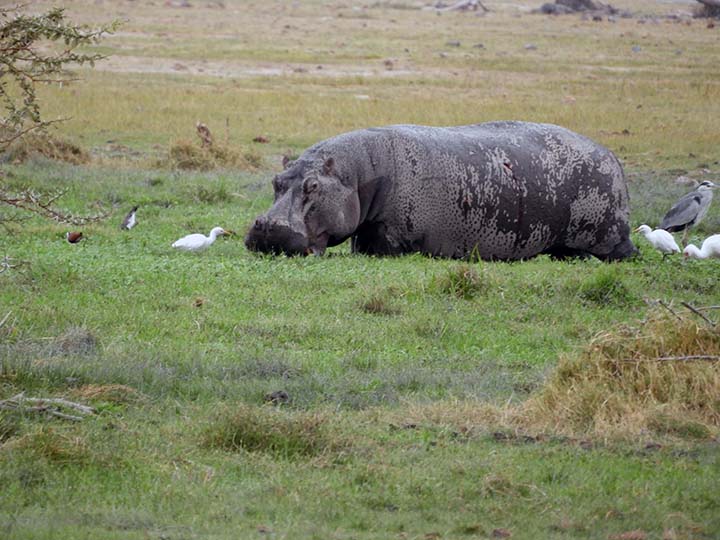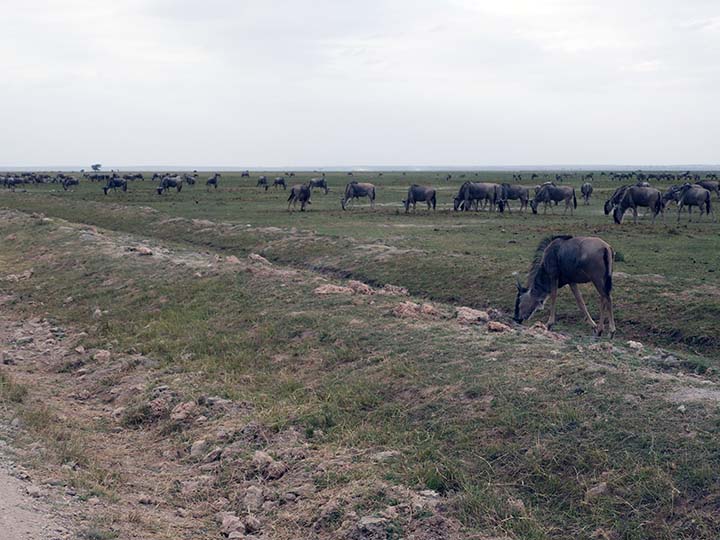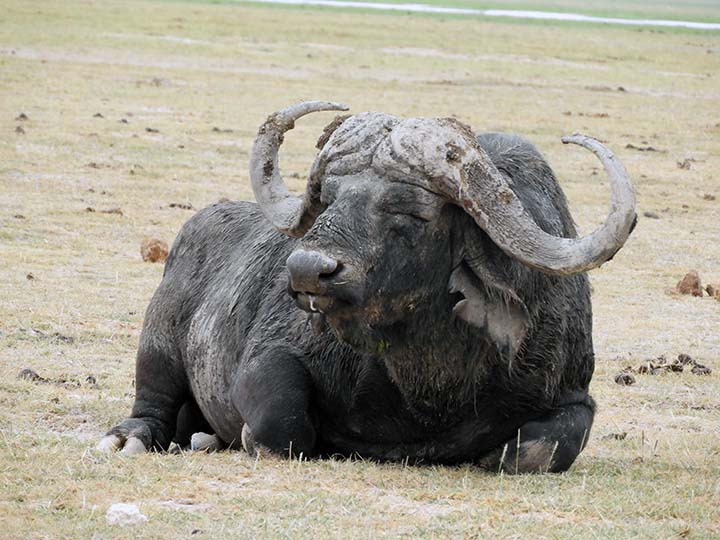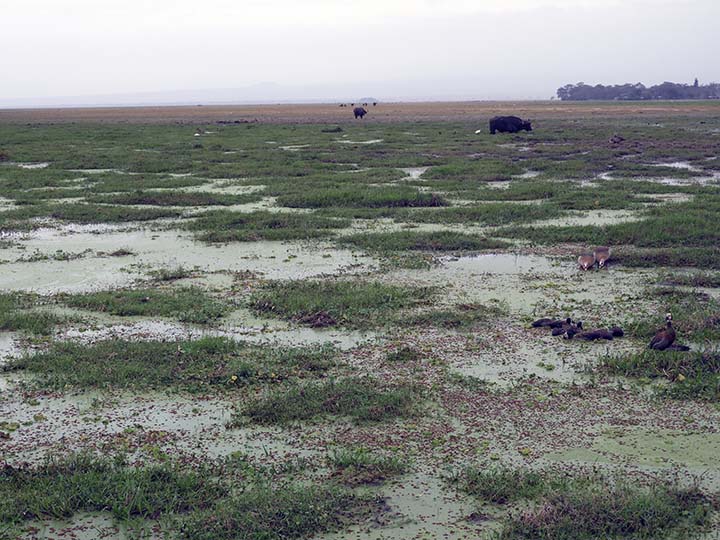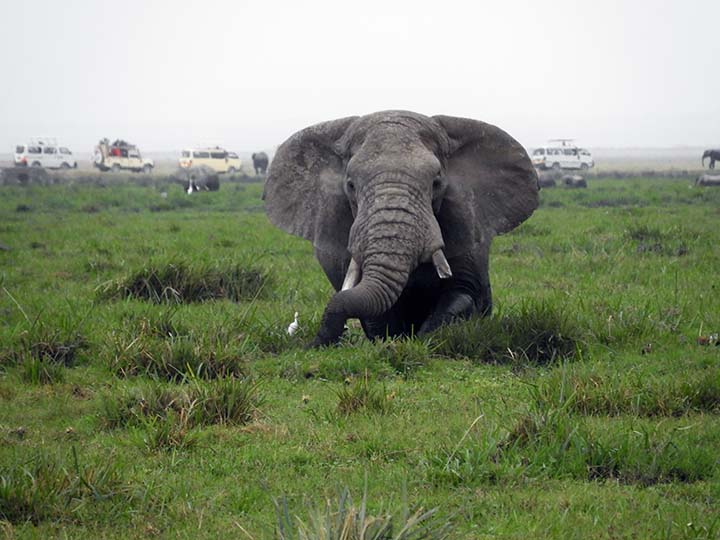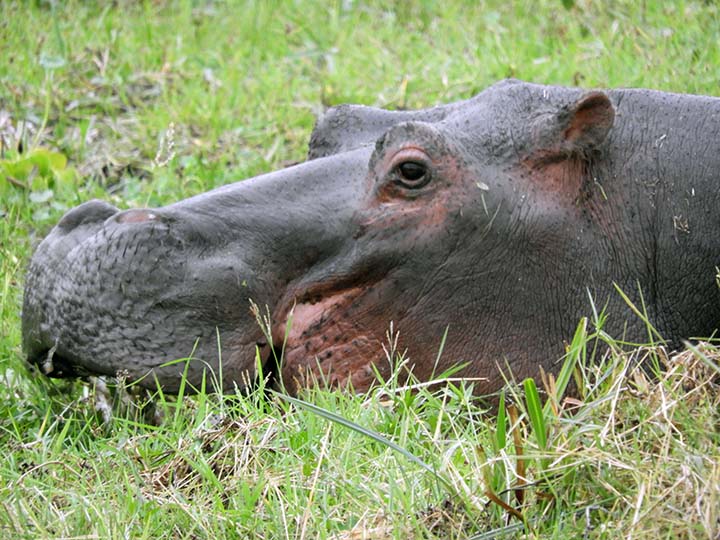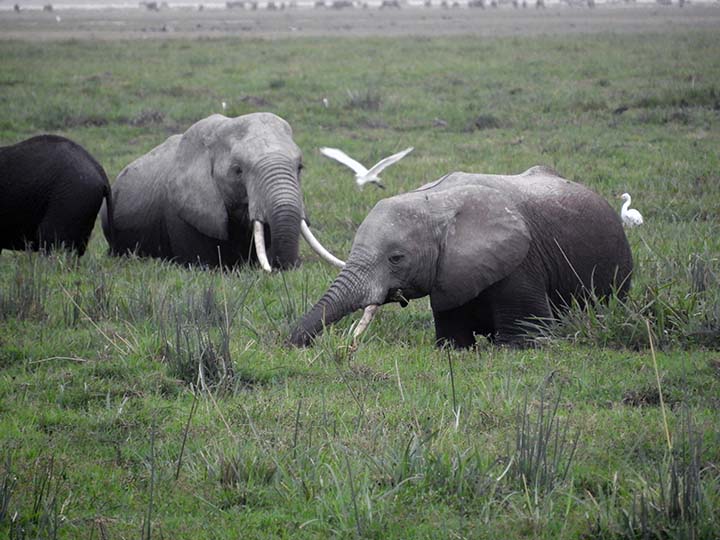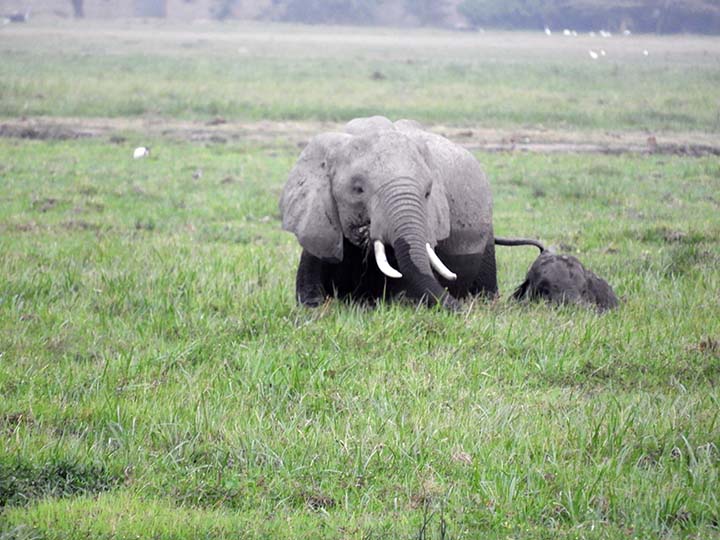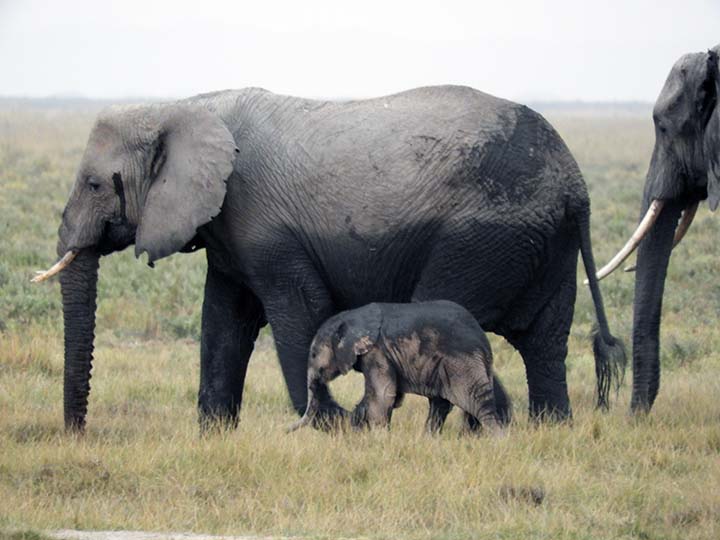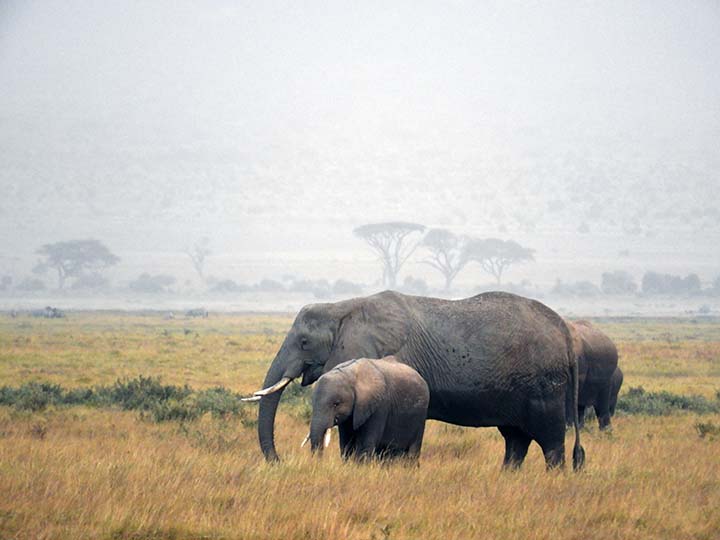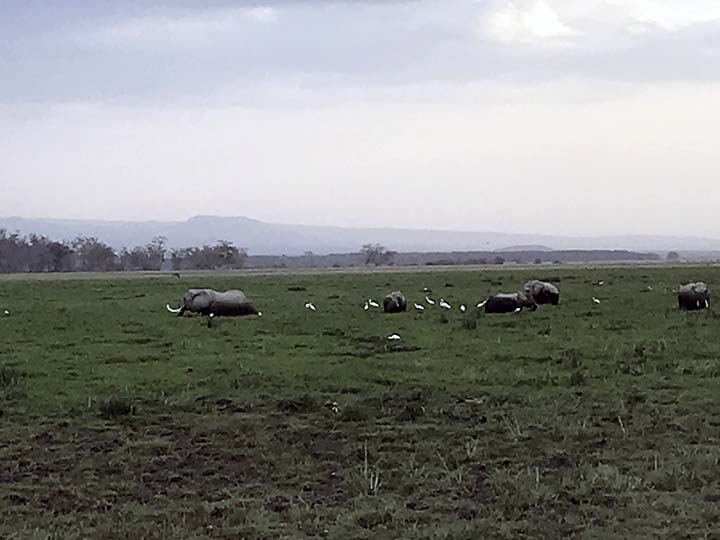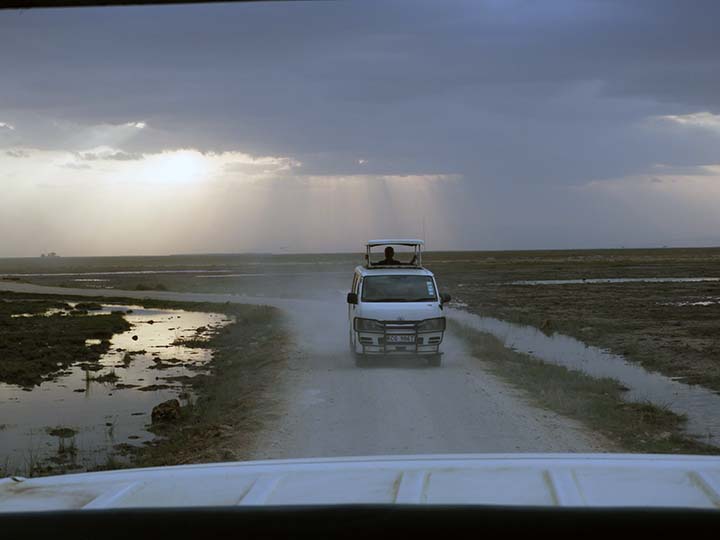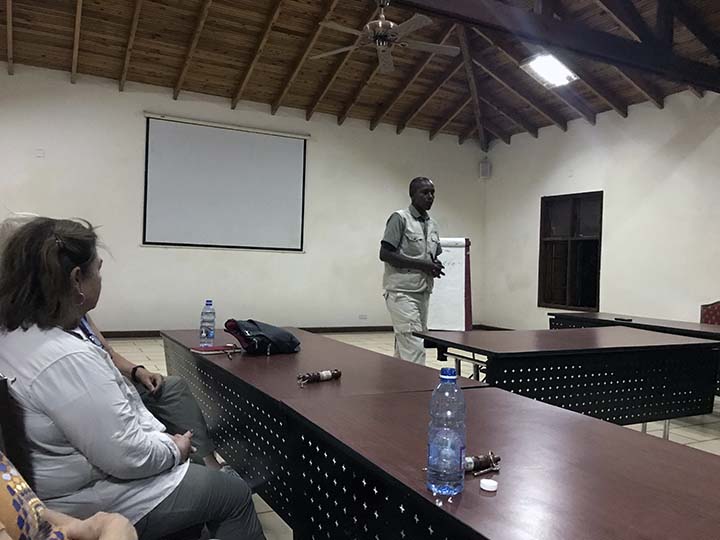|
It's morning! Let's go see some animals.
This is a first class national park. There's a gate and guards and paperwork and everything.
The first animal of the day is also one of the rarest: a kudu. Our guide and driver, Maturi, was delighted and kinda surprised to spot this animal. There have been very few in the park in the past, but their numbers are growing.
This is a Grant's gazelle, not a Thompson's gazelle. Know how I can tell? It's all in the butt. If there's white above the tail, that's Grant's. Brown above the tail? Thompson's.
He is impressed by my knowledge of gazelle butts.
So he showed me his own. I admit that because the wild animals tended to turn their backs on the tourists and walk away, I have lots of pictures of animal butts.
A lonesome road.
Hi giraffe.
Hi little bird catching a ride on the neck of a giraffe.
This is what's called a symbiotic relationship. I think.
Wildebeest.
Curious wildebeest.
Lotsa wildebeest.
Want to see them on the move?
Jim and Marsha certainly do.
The wildebeest and the zebras seem to get along just fine.
Do you know what a zebra crossing is? I first heard the term on my initial trip to London in the 70s. It's what the British call the white stripes on dark pavement in the cities to indicate pedestrian crossings. Stripes = zebra crossing. Get it? So when Kip used the term "zebra crossing" when the zebras started crossing the road I laughed and asked him if he knew what a zebra crossing is in London. Ha ha. He just looked at me like I was the dumb American tourist I actually am. "I was born and raised in Kenya." And then I remembered who had colonized the country and ... duh.
I'll never think of a zebra crossing in the same way again.
We saw herds -- great multitudes -- of wildebeest nearly everywhere we went on this trip. There's a story in that and I'll get into it later, when we're actually on the Serengeti Plain where the great wildebeest migration takes place. Clearly these guys are lost.
We're in Kenya, everybody. Don't you even care?
Nope.
And leave us alone.
We don't need no map.
Well just look at that! A shallow lake left over from the last major rainy season which, according to Kip, was two years ago.
Flamingos!
Lots of 'em.
Flamingos aren't naturally pink. They are born with grey feathers, which gradually turn pink in the wild because of a natural pink dye called canthaxanthin that they obtain from their diet of brine shrimp and blue-green algae. And now you know.
They're feasting right beside a lavish safari camp which got flooded during that last major wet season two years ago and now sits abandoned.
Want to see flamingos in motion?
That's a pretty water bird of some sort. Hadada ibis, maybe? Marsha! Help!
OK, if it walks like a duck and it quacks like a duck, it must be...an Egyptian goose.
Now this one...that thing has quite the beak, right Marsha? White ibis, maybe?
Kip says there ought to be elephants over there.
And he's right!
Shy, isn't he? Told you I have lots of pictures of animal butts.
Here come a couple.
And a cute little baby!
This was where we learned that impressive, fascinating, cute, or whatever else, elephants are also destructive.
We could actually hear them crunching and munching on the vegetation. Later on we'll see big patches of forest destroyed by elephants.
This group of cape buffalo was a bit shy.
They were way over there beyond the elephants and I couldn't get a clear shot even with the telephoto lens.
Zebras enjoy the mud.
Clearly this guy has been up to his chest too.
Here's how he got muddy.
This was probably the second most memorable elephant encounter of the trip. (Wait'll you see a bull elephant challenge our Land Cruiser.) In this case we merely saw a big herd approaching the road we were on. Should we let them pass?
They do seem intent.
And they're brought their uniformed lookouts.
And they've been playing in the mud!
Even the little guy!
Maybe we should just stay back and let them by.
Aww. And see how he's brown while mom is B&W? That's how it works. When they grow up they change color.
There go the muddy elephants.
Heh, look! They have passengers.
Jim is in command.
They're having fun in the other vehicle too!
In between animal spottings the road is long and dusty.
Hey, out of our way!
Who you talkin' to?
Is that a dramatic picture?
Or just a funny one? You decide.
Yes, we see you over there.
You and mom.
If you itch, you scratch.
Somebody says they've organized a nature walk for us back at the hotel, the camp, whatever you call it.
First up, a hoopoe! See Marsha? I'm not totally bird ignorant.
Let's go for a walk.
We have two local guides: one's from a tour company and the other is a member of the local Maasai tribe. This is going to be good.
That acacia tree looked more dramatic against the sky in person than it does in this picture, but here you are anyway.
Let's stop under it and see what we can learn.
It's an acacia seed pod!
It's the inside of an acacia seed pod! Some trees produce edible seeds while others are poisonous. Let's just put these back where we found them./
Our guide was fascinated by Kathy's long-lens camera. She let him have a look.
Then he taught us how to make a toothbrush. First you need a twig of salvadora perscia.
You just break off a stick and fray the end and voila! If he had a little Colgate he'd be all set.
Here's somebody demonstrating in a pic I downloaded from the internet.
We're near Mt. Kilimanjaro ("Tanzania owns it but Kenya has the best view") and there are volcanic rocks everywhere.
Some of the vegetation doesn't wish to be touched.
Could we identify the skulls? Sure we could. We're experts in cape buffalo and gazelles by now.
Enough nature.
Oh yeah, one more discovery on the nature walk. This is the diesel generator that provides electricity to the camp some of the time. If you want power in the afternoons or during the night, you're out of luck. Gotta save that diesel, don't you know.
Our guide had pierced ears.
Cloven ears, actually. Very nice, if you're into that sort of thing.
Our guides were terrific. This has been a fascinating nature walk.
Now back to the wilds. Hi Mr. Ostrich.
And you. What exactly are you? Waterbuck? Maybe?
An elephant has been this way.
So has an ostrich.
When you can't bathe in water, dust will have to do.
I don't need Marsha to tell me that's a vulture.
More dusty road. Hey, wait...those aren't trees up there.
They're moving!
And they really want to cross the road.
Let's stop and watch.
Hi guys!
Know what you call a group of giraffes? A tower.
Or, according to some, a stand.
But these guys aren't standing.
Our of our way!
The wind kicks up dust devils out here all the time.
Lions! Oh boy!
They don't look as excited to see us as we are to see them.
Tourists...
Bleh.
I'm getting outta here.
But wait...suddenly every safari vehicle in Kenya has descended on these poor lions.
Food?
Nah...they don't look so tasty.
Let's move along so spy on some baboons.
It's a baboon baby!
There are even baboons in the road.
There are baboons everywhere!
Hold still! I see a bug.
Make me look nice.
There's an art to this grooming business, especially when you've got kids running around.
It isn't just elephants and zebras who enjoy a little mud now and then.
The hippos and the birds like it just fine.
As do the wildebeest.
And the cape buffalo.
In a dusty land like this, a mud hole is a real treat for everybody.
Here are the elephants again.
Oh my, this is nice.
Through muck and through mire. "Hello, Muck! Hi, Meyer! (You don't know your Spike Jones? Never mind, then.)
Just let me wallow in peace.
With my friends the elephants.
And their friends the birds.
Mmmmm mud.
Little Dumbo will need a bath tonight.
So let's head home.
C'mon everybody.
The sun's going down.
And the tourists are headed back to their tents.
Where they'll sleep after their evening lecture on African culture. Or something. Honestly I couldn't understand a word this very nice man said. But I was tired...
|

